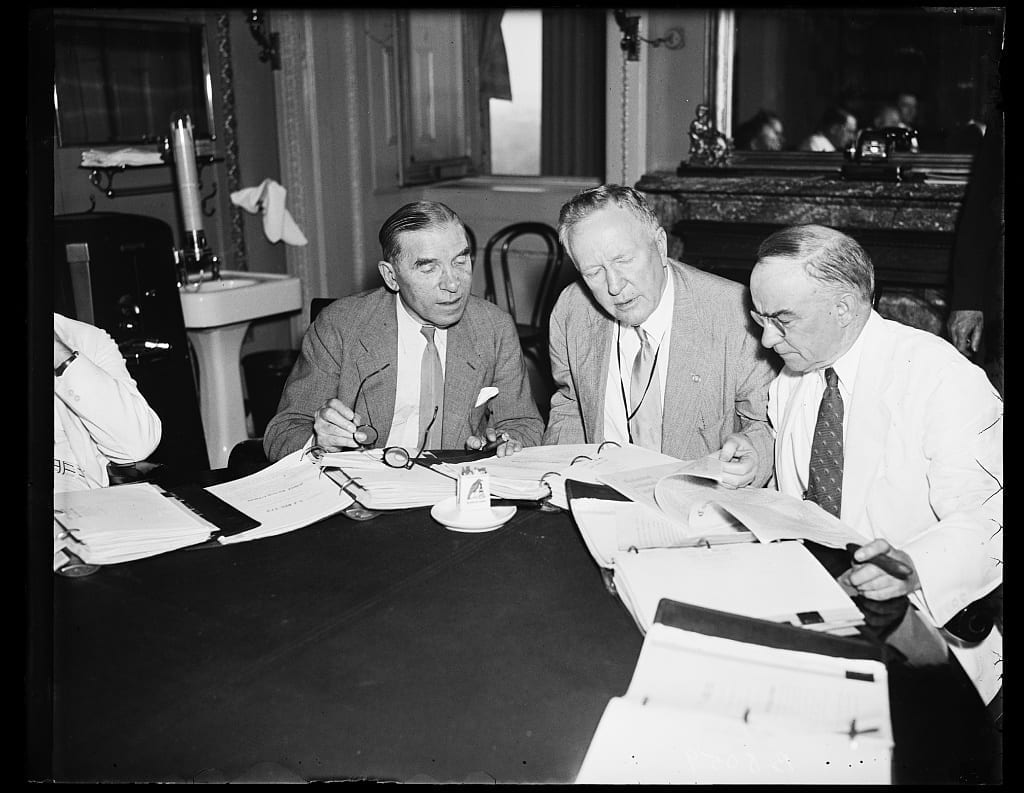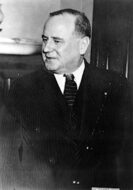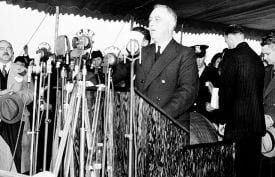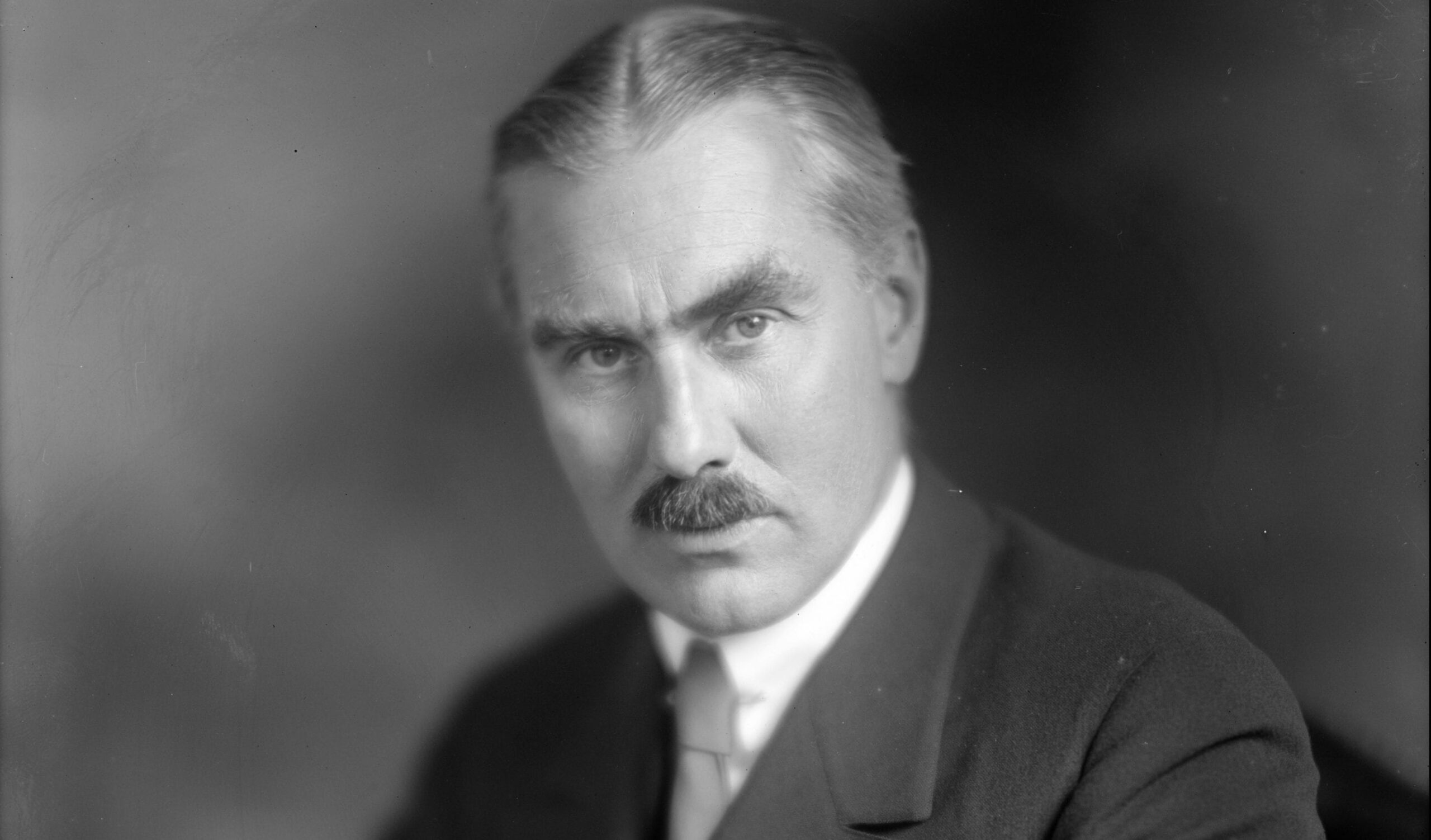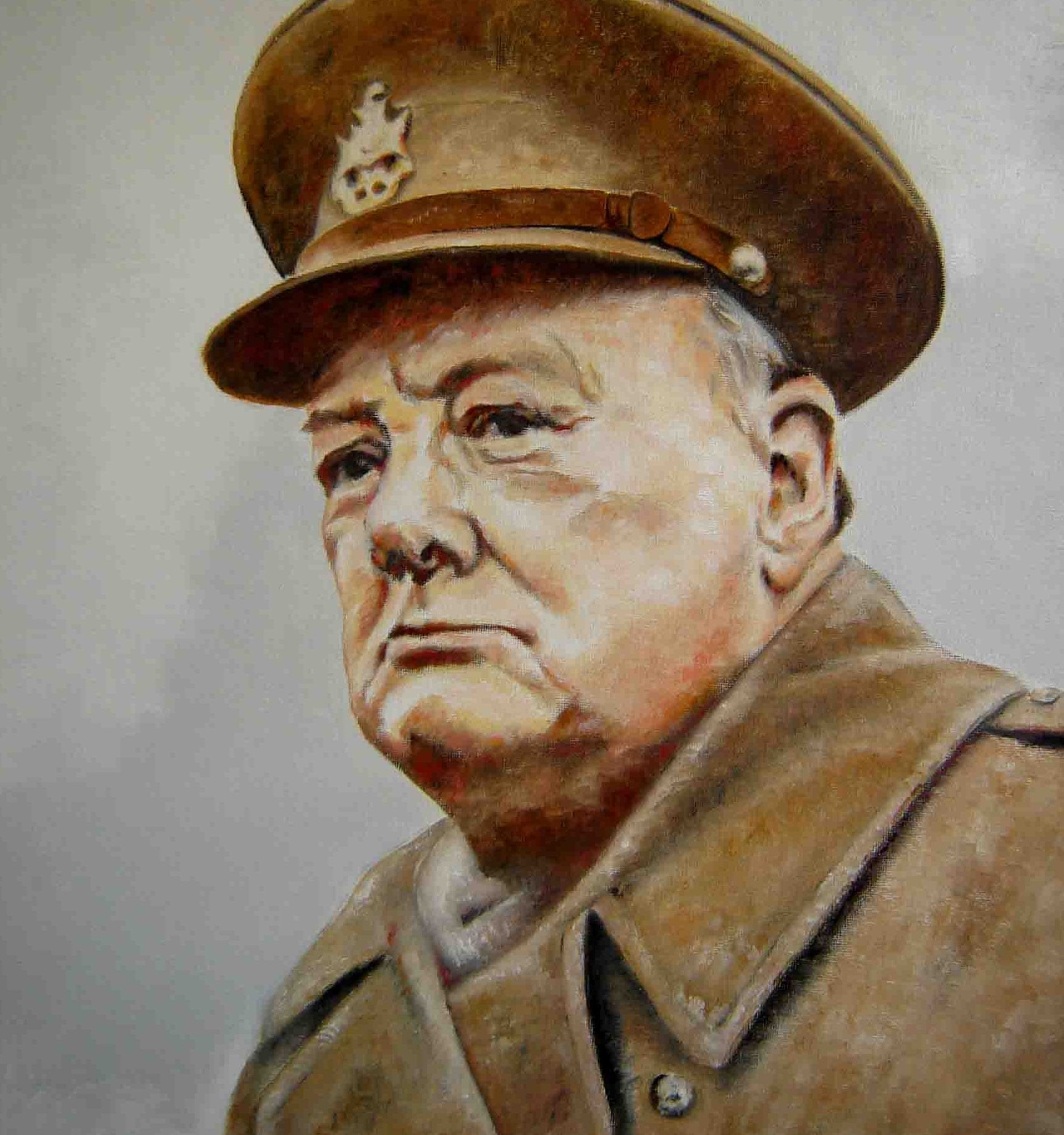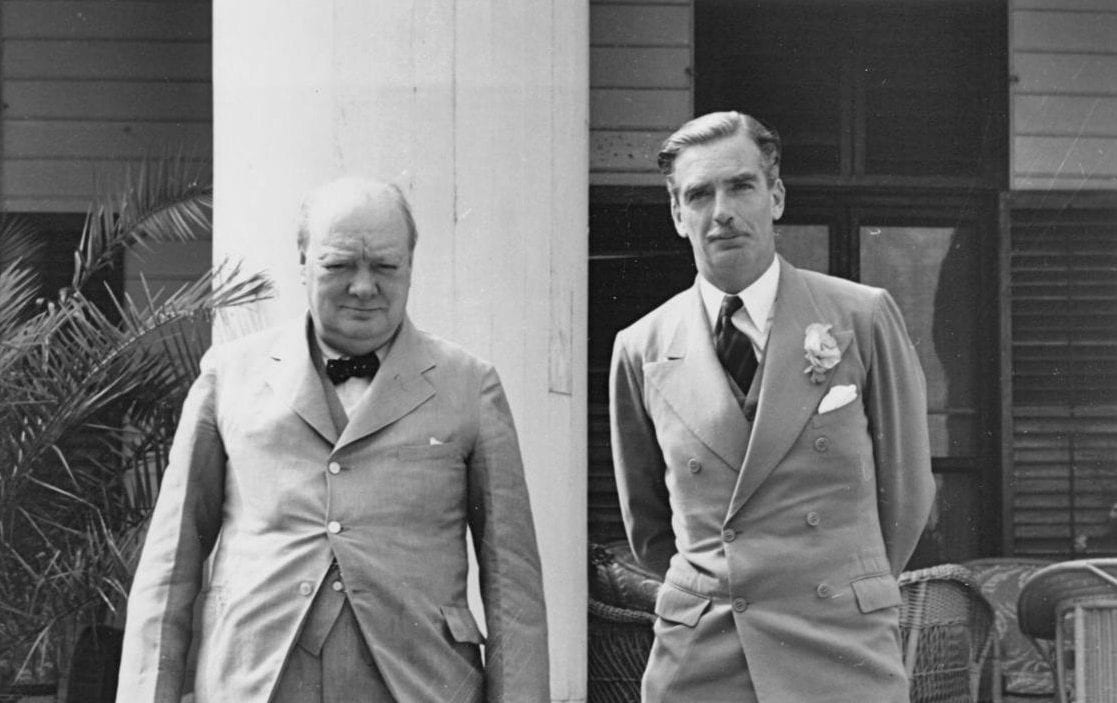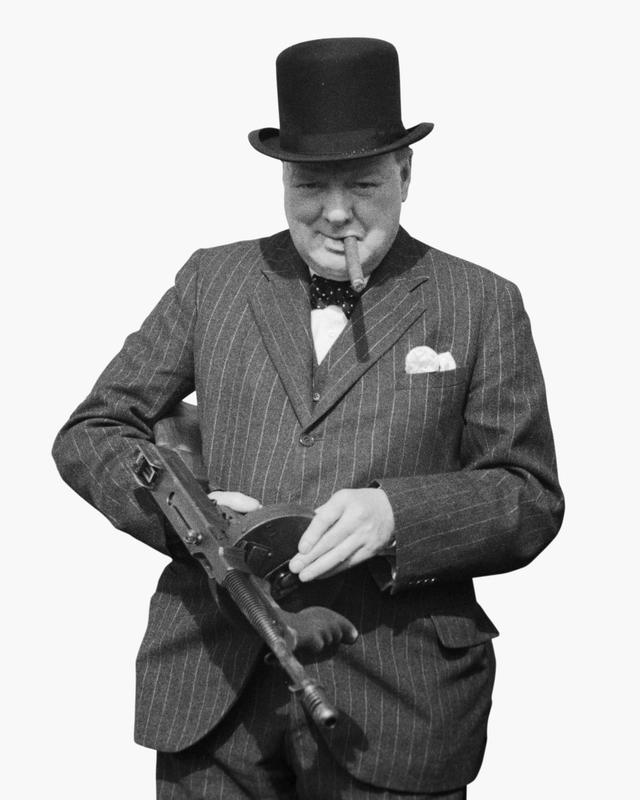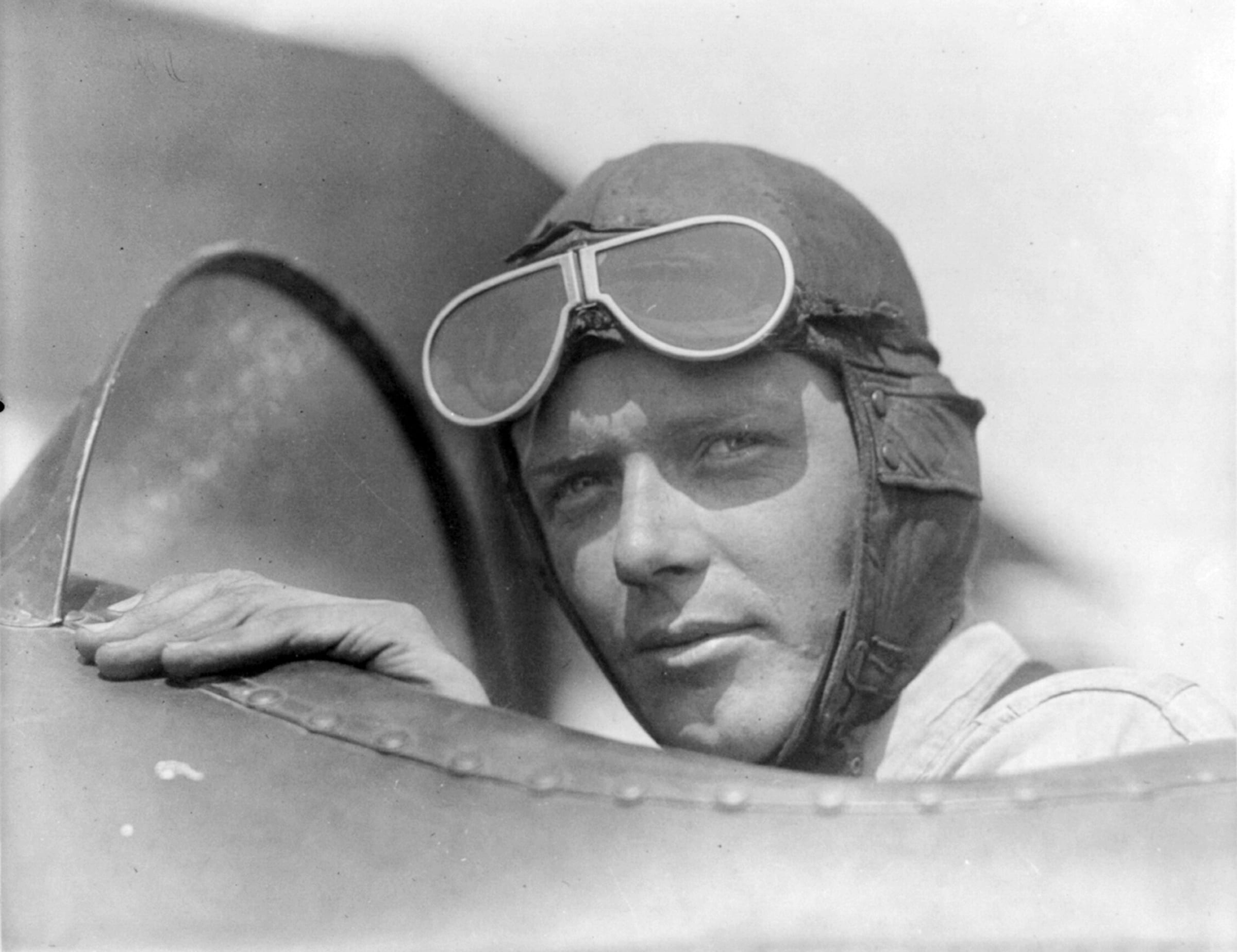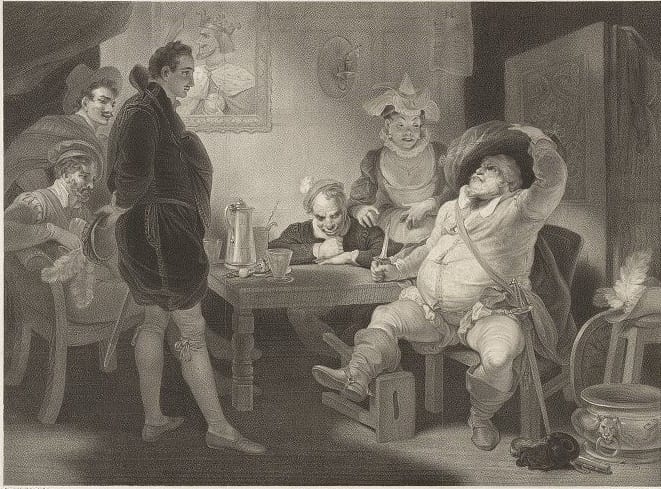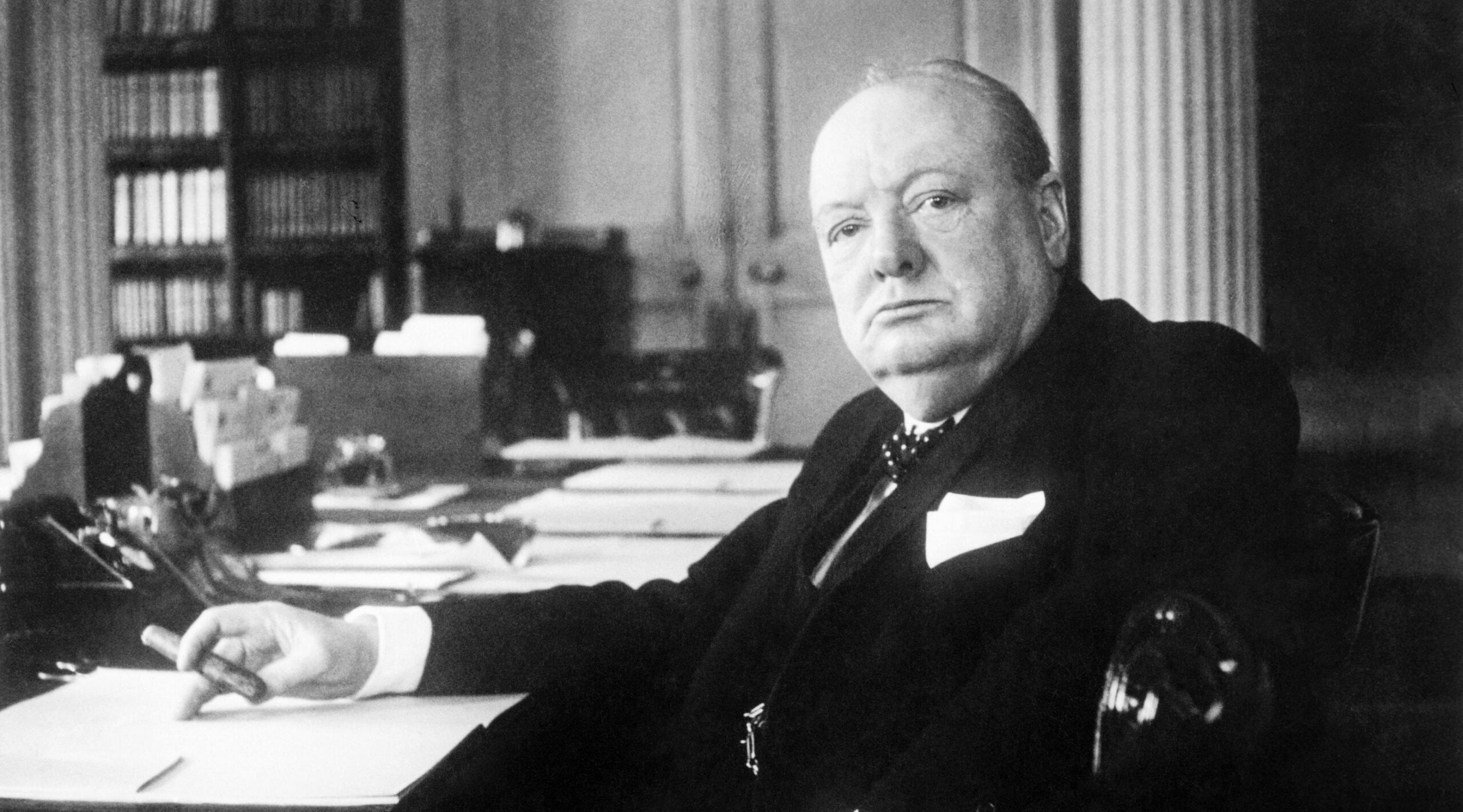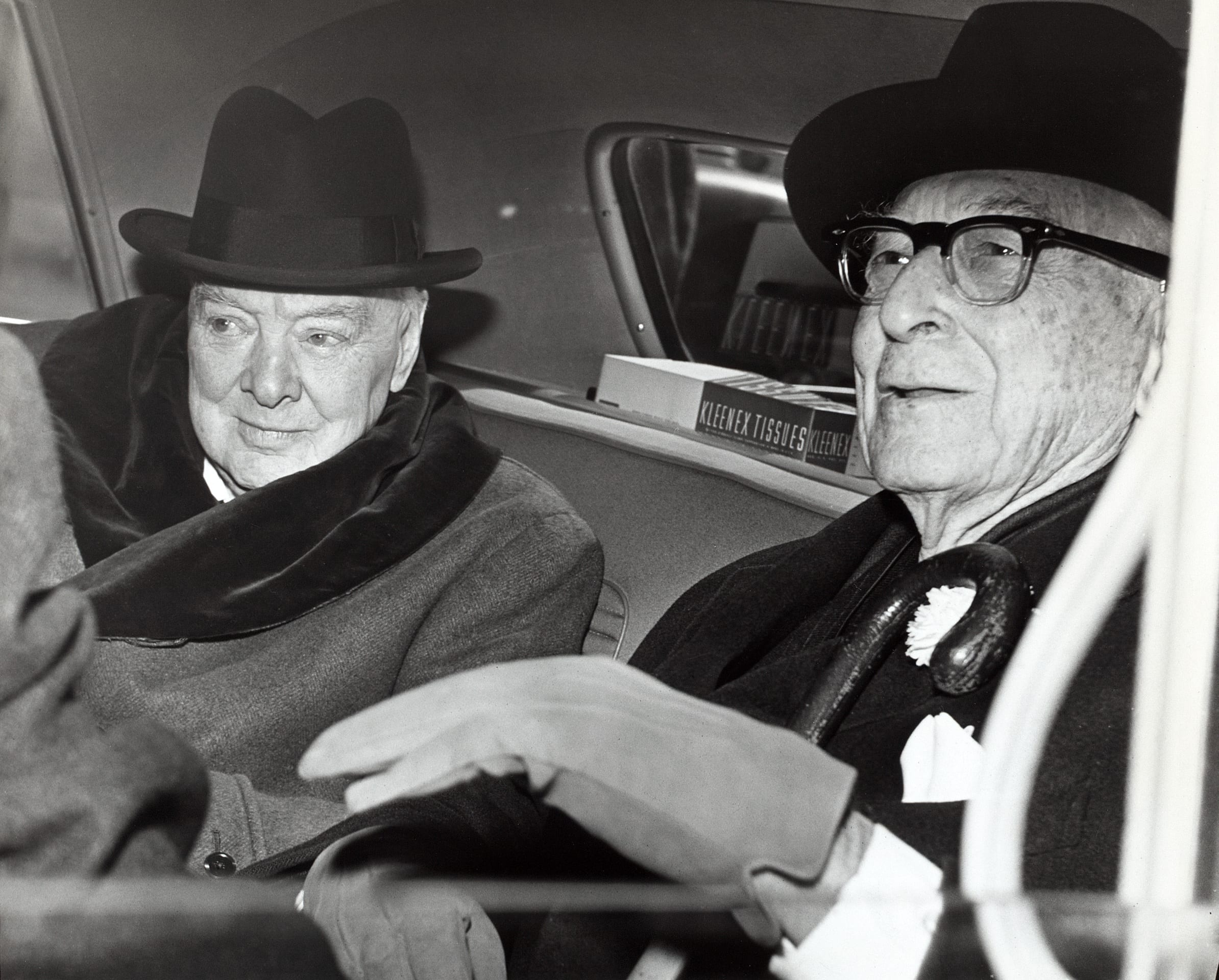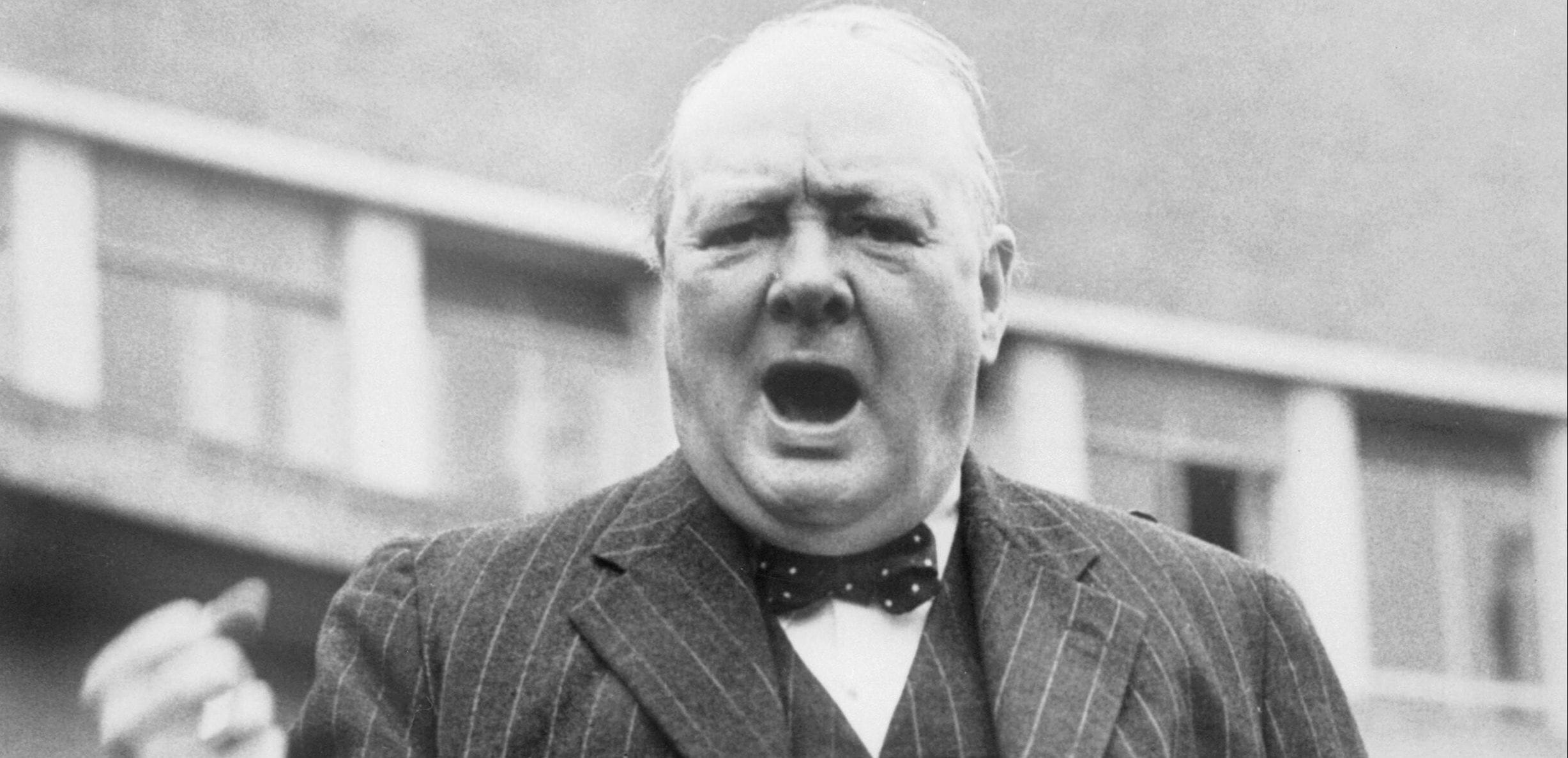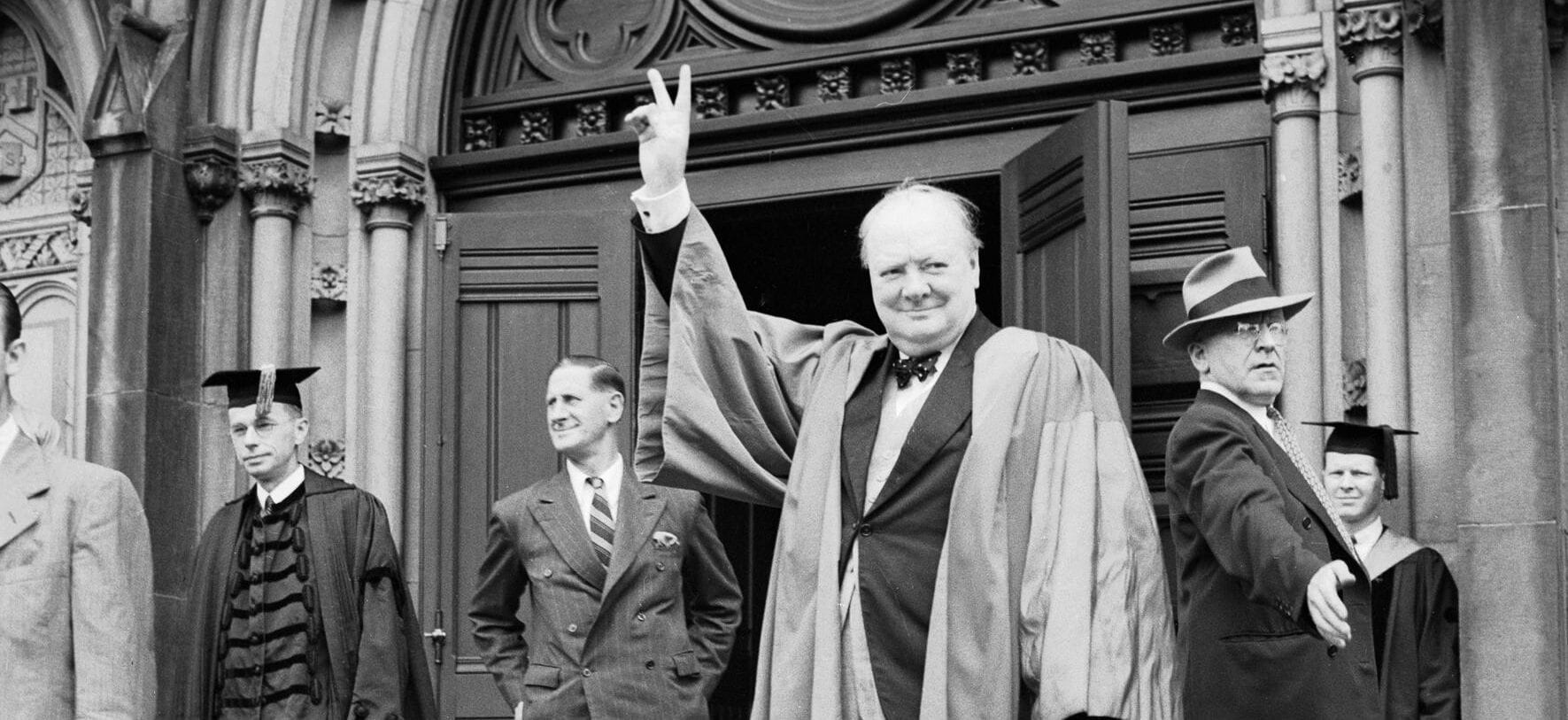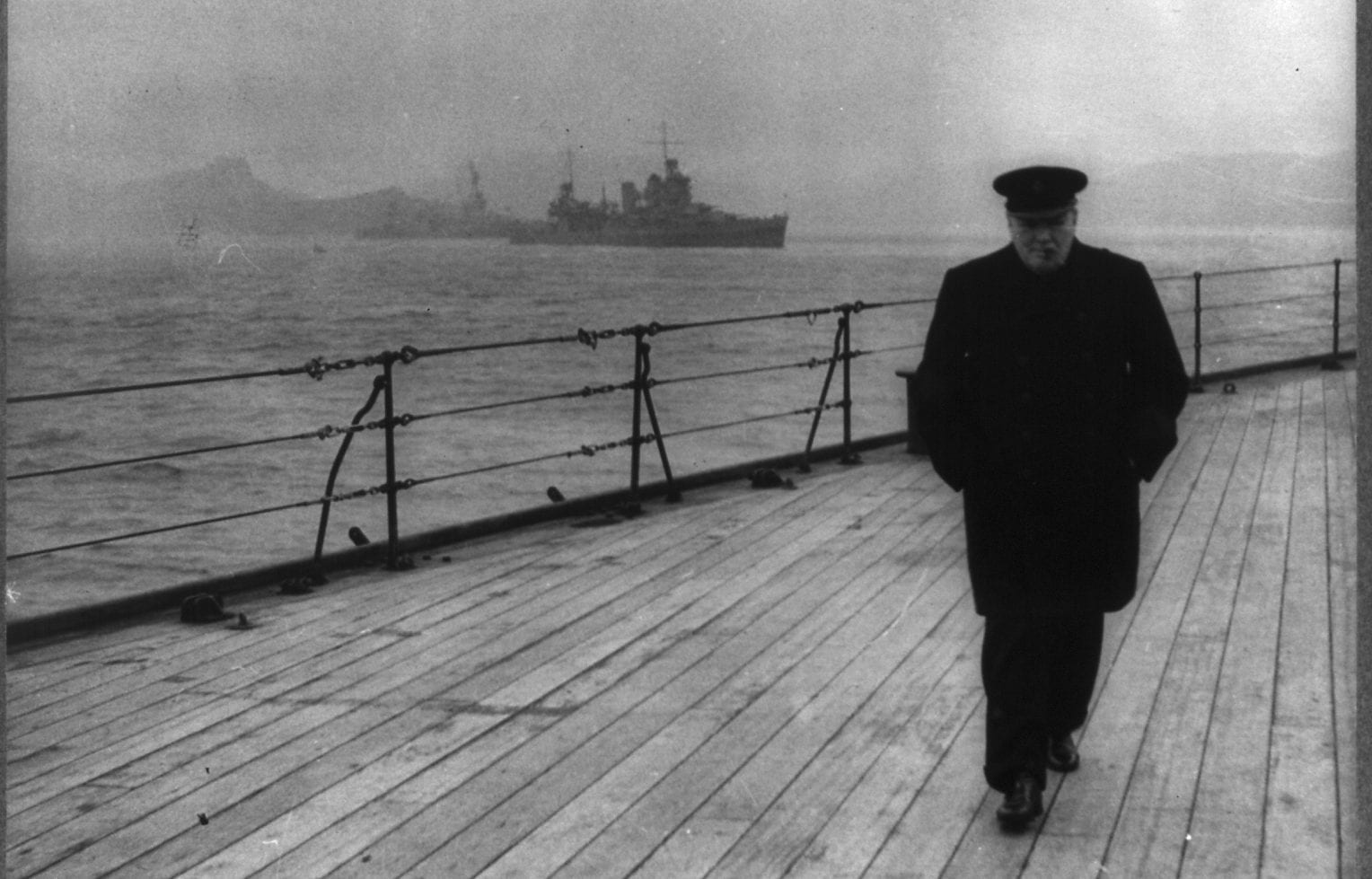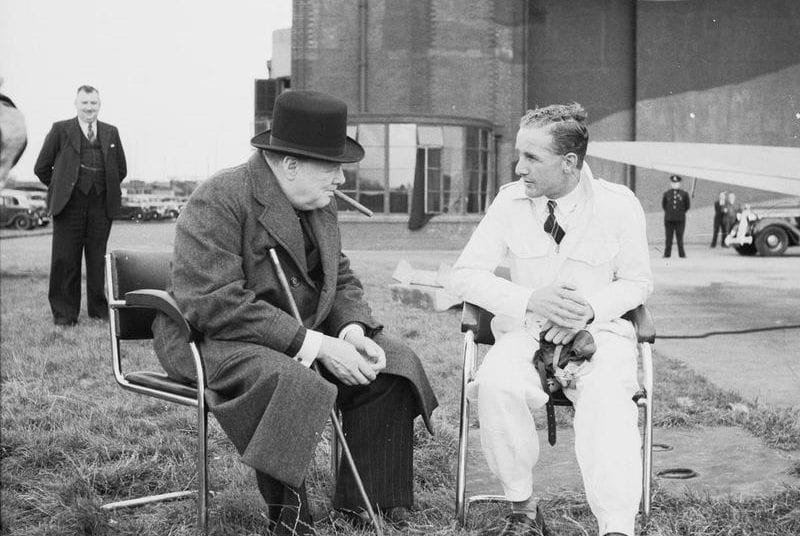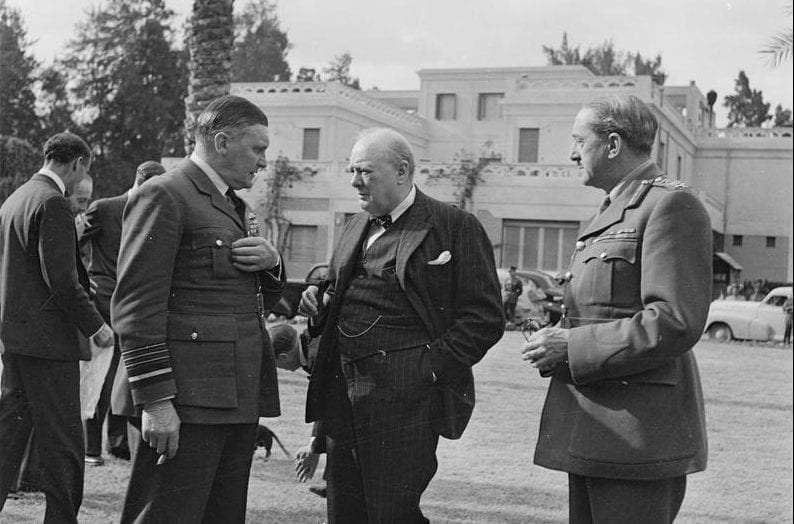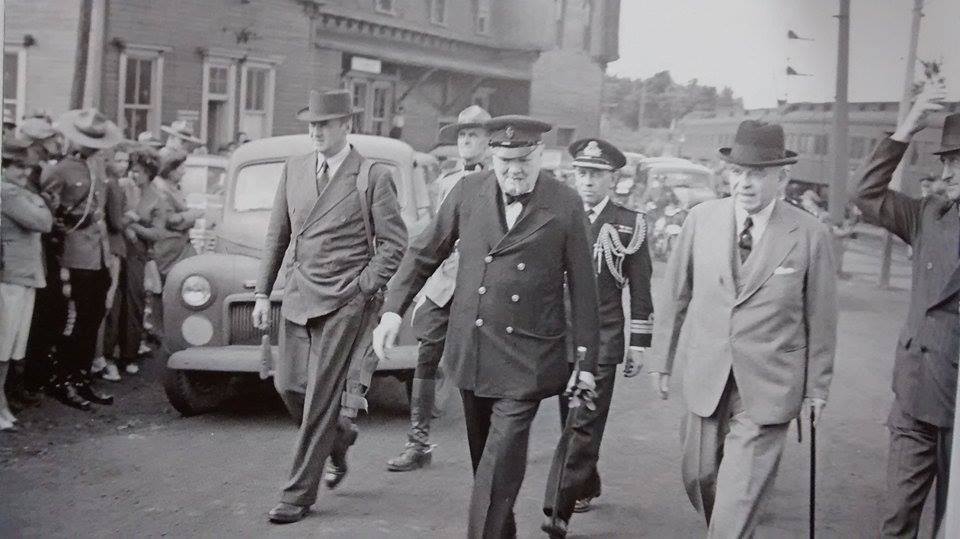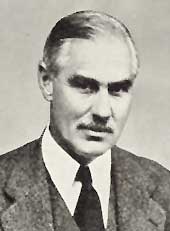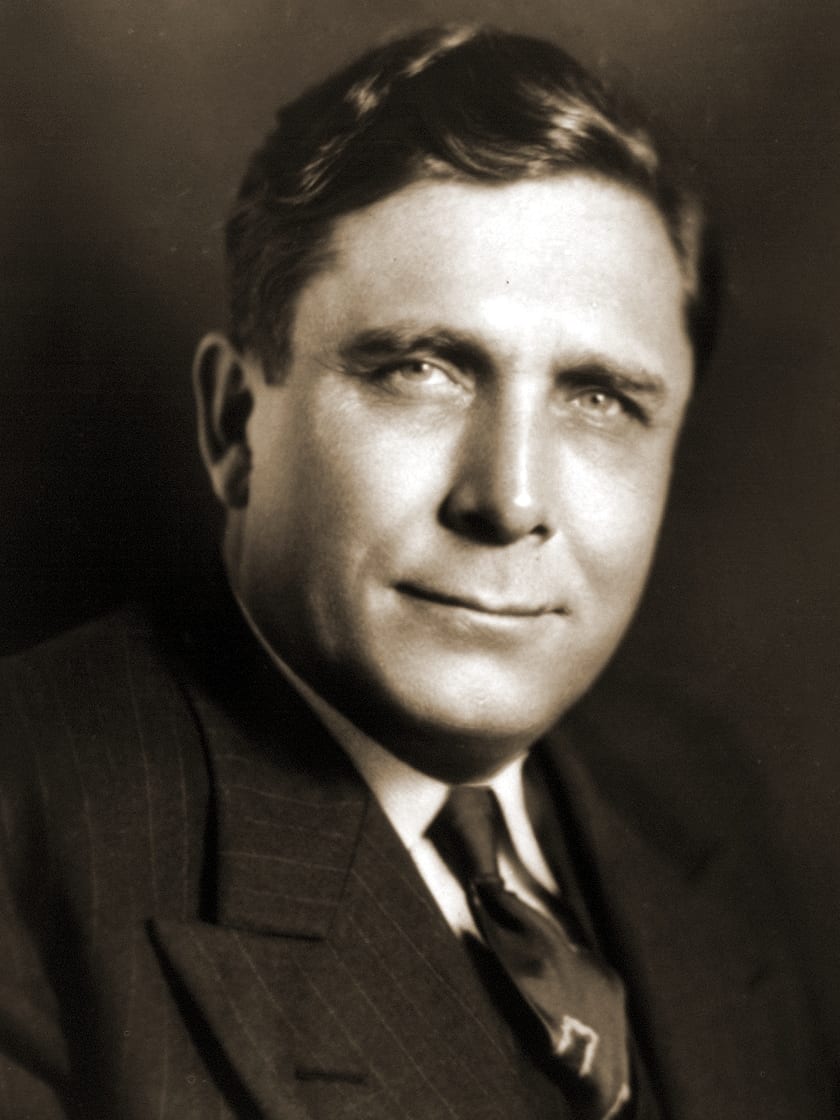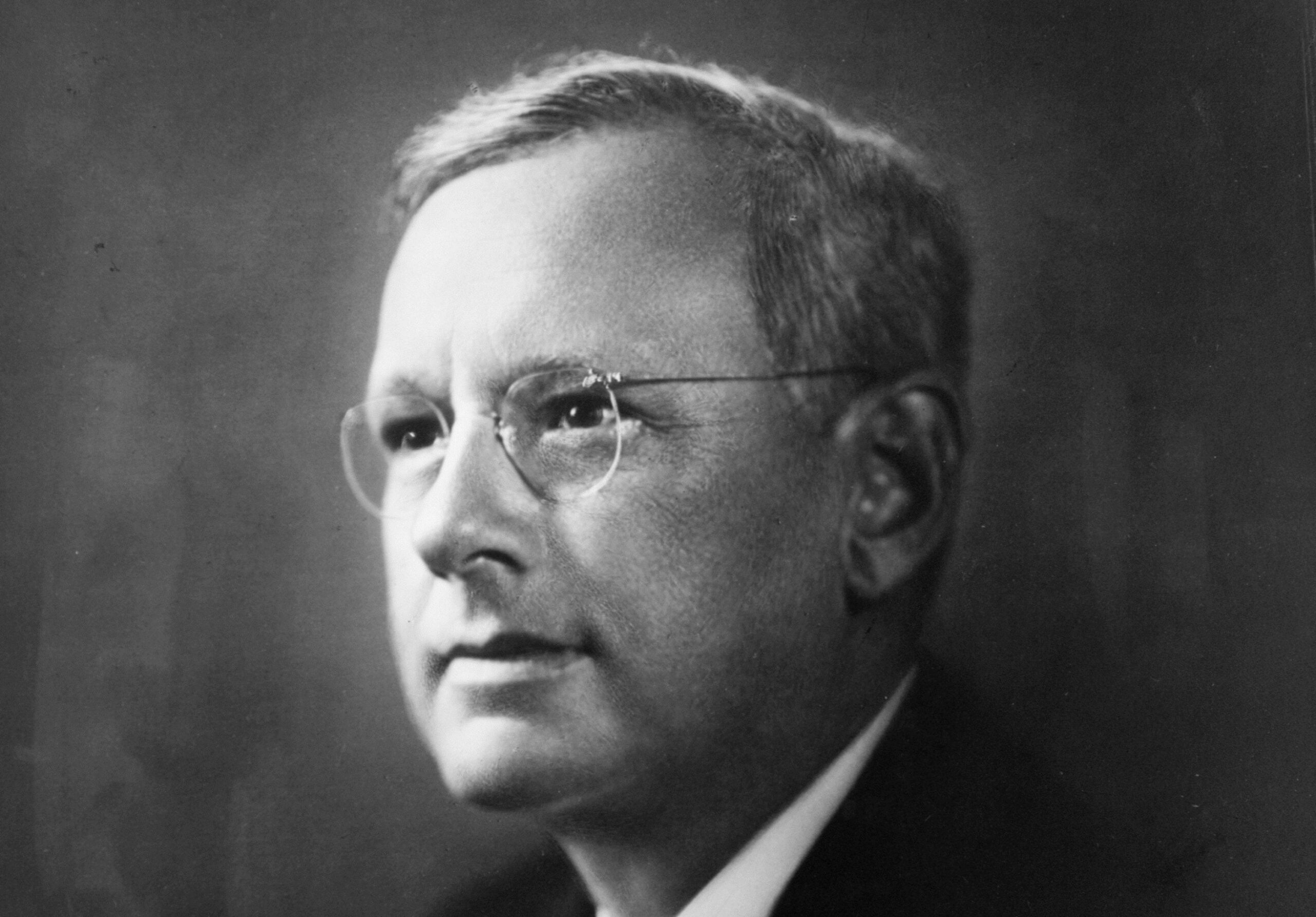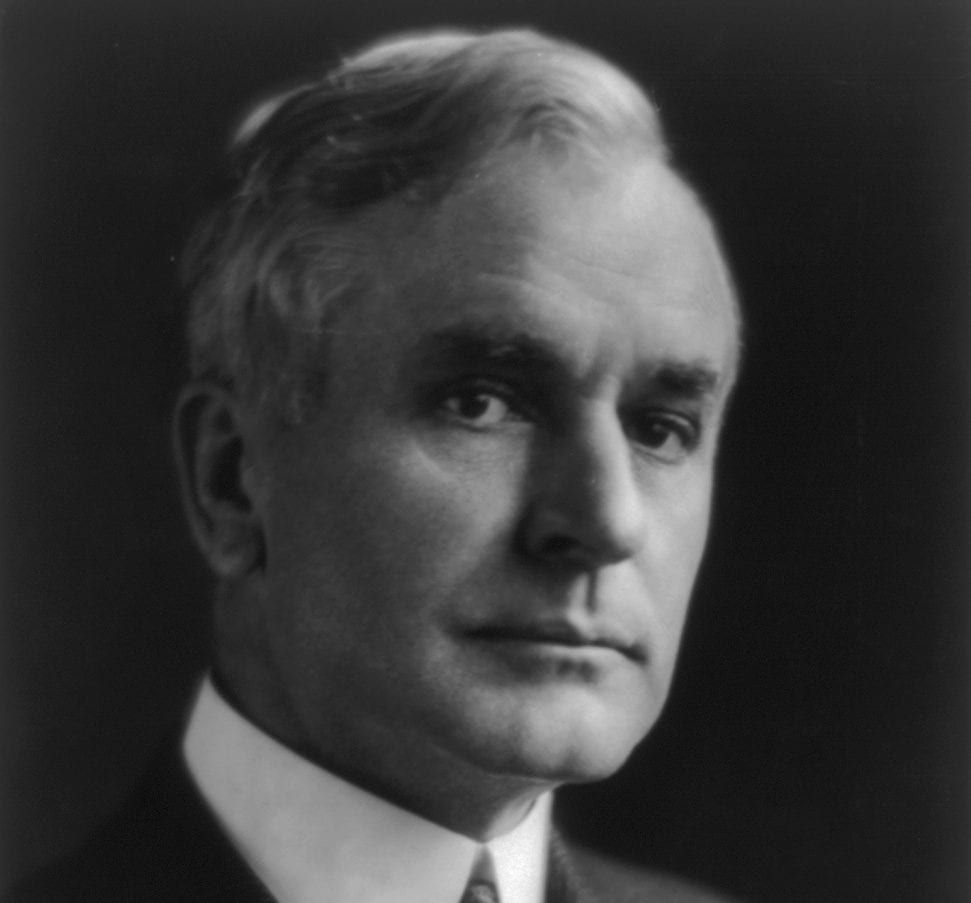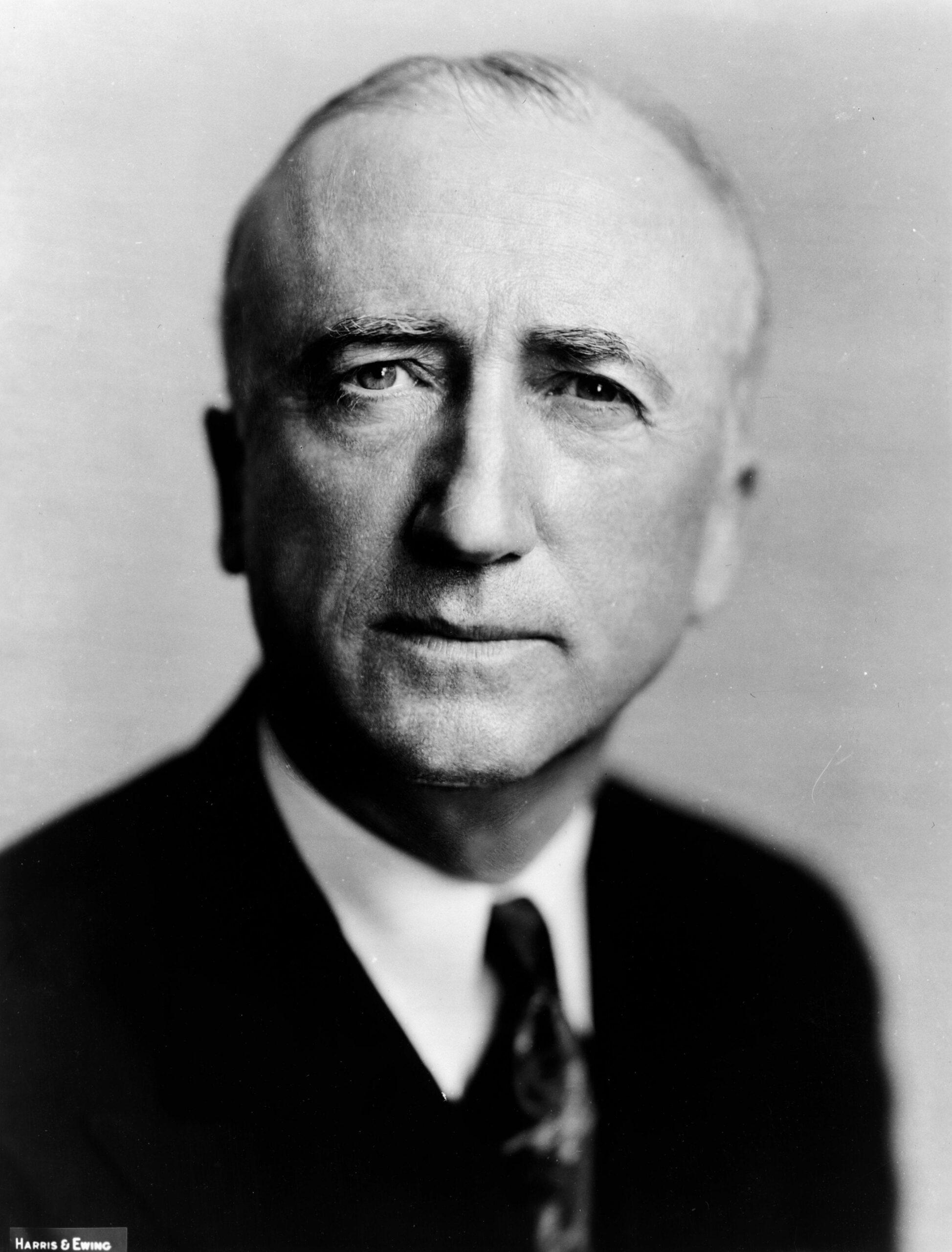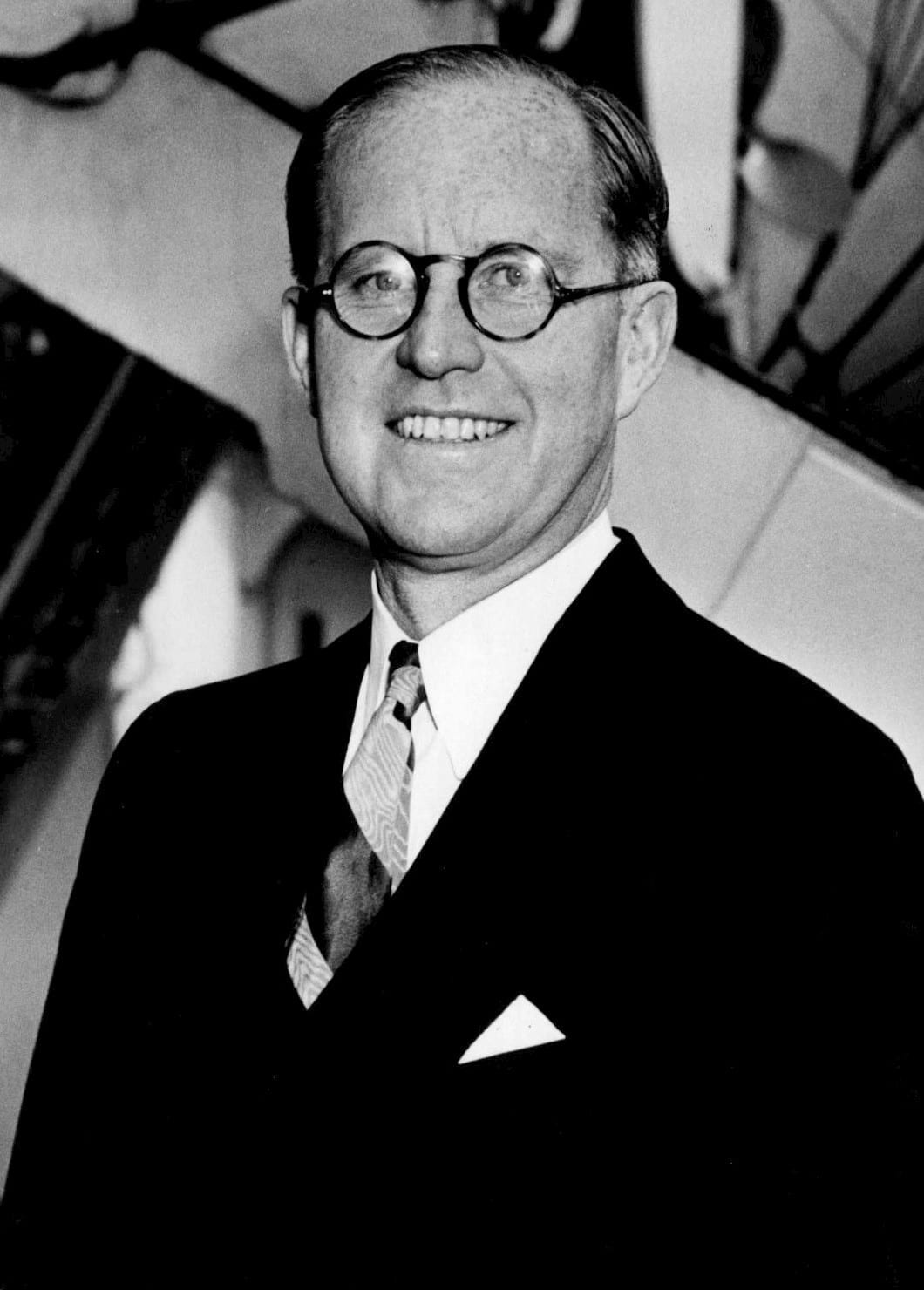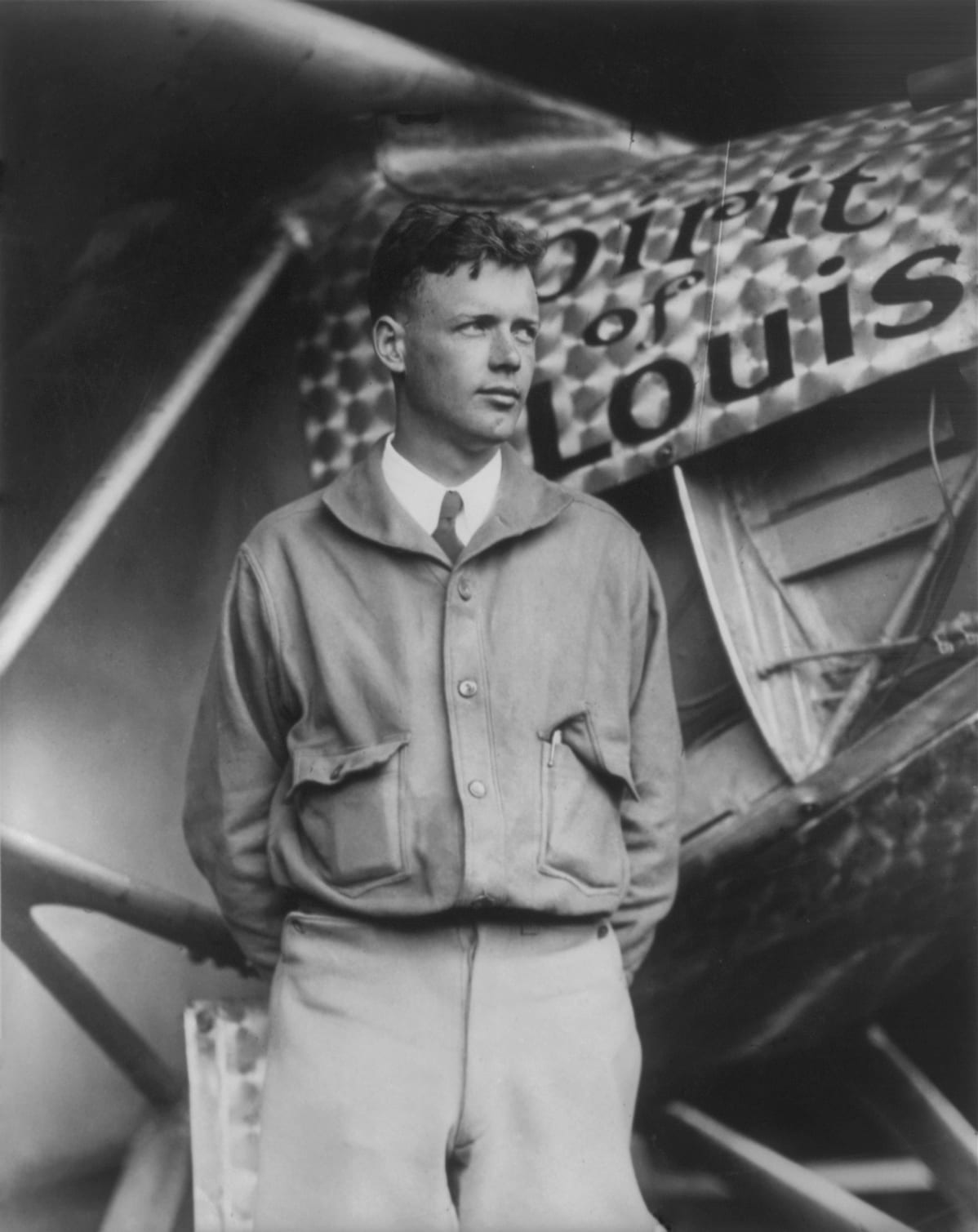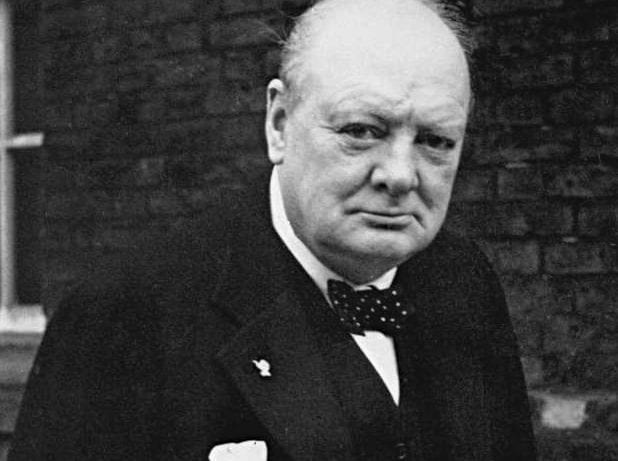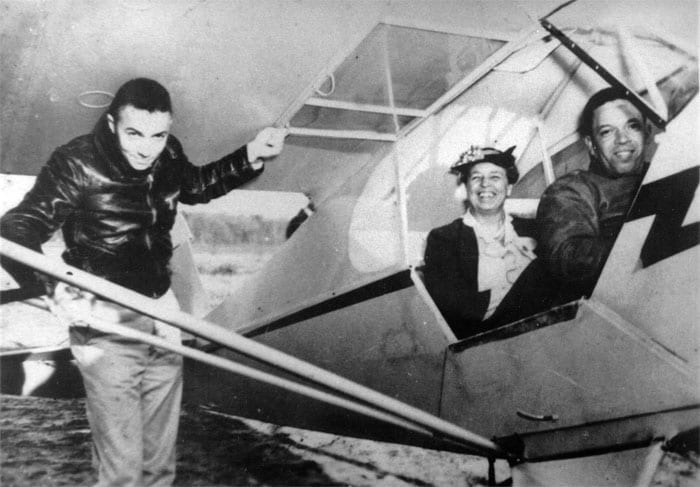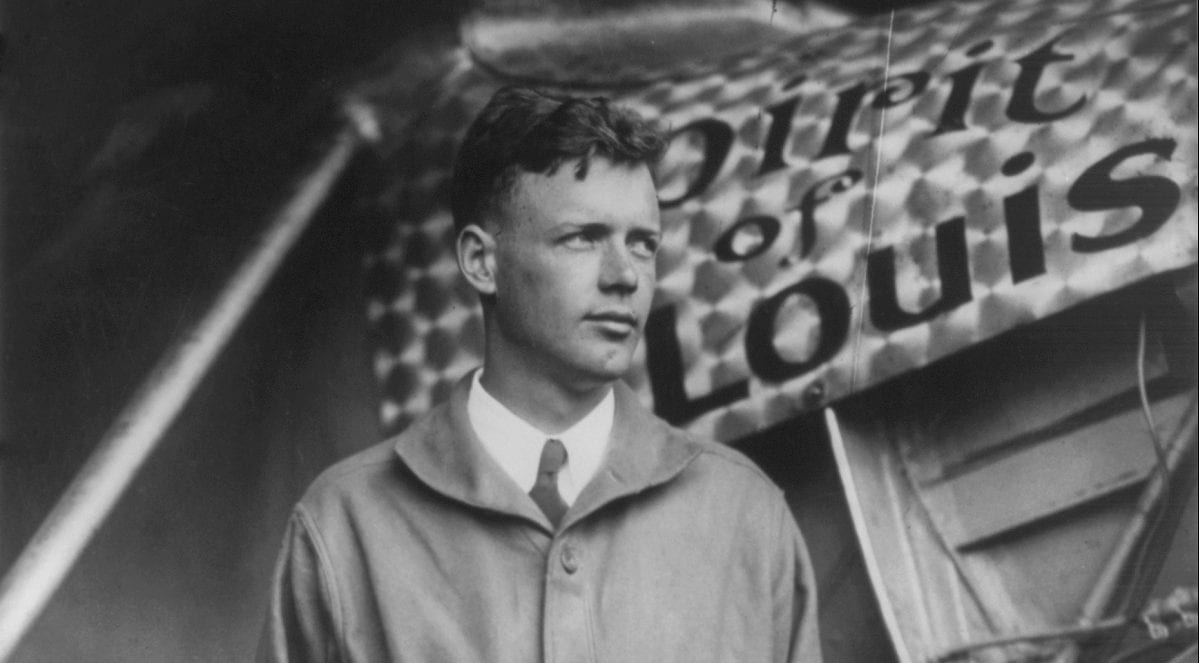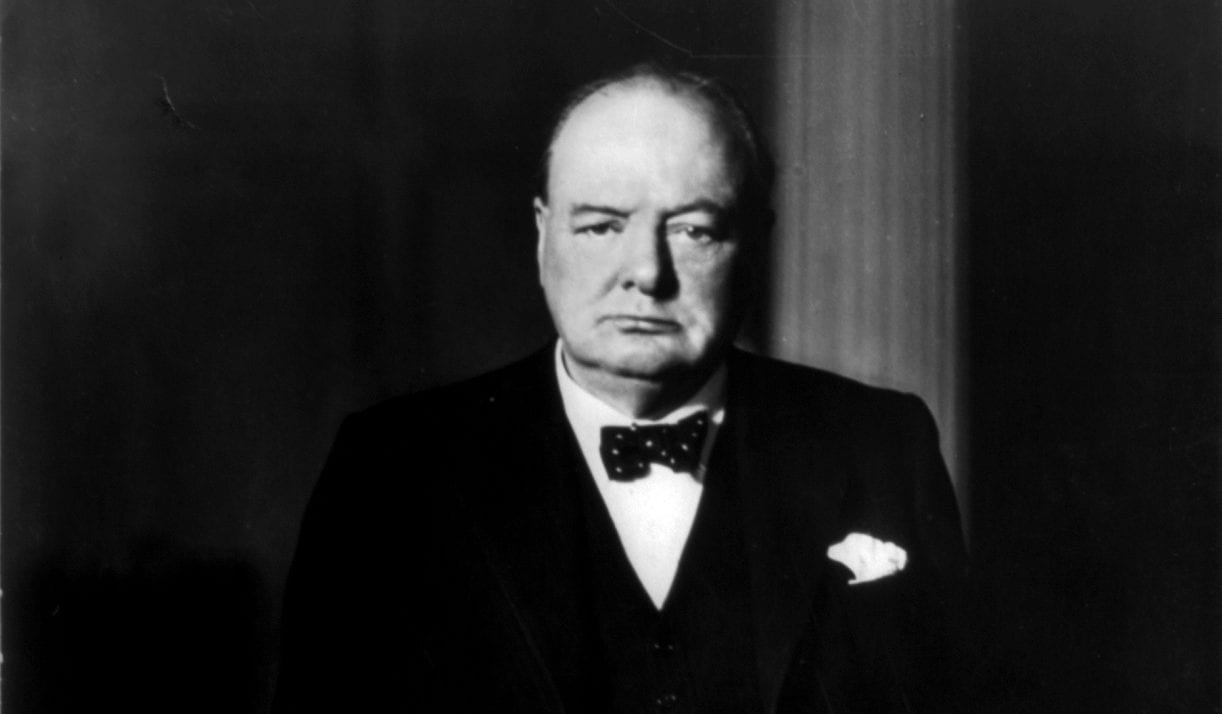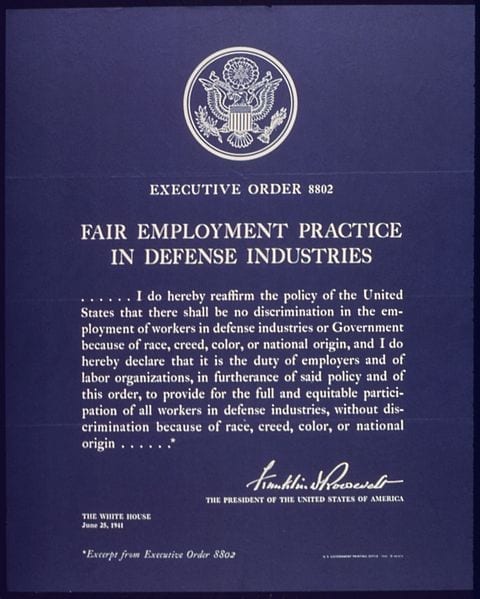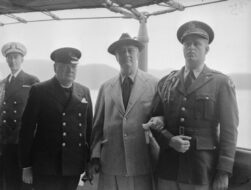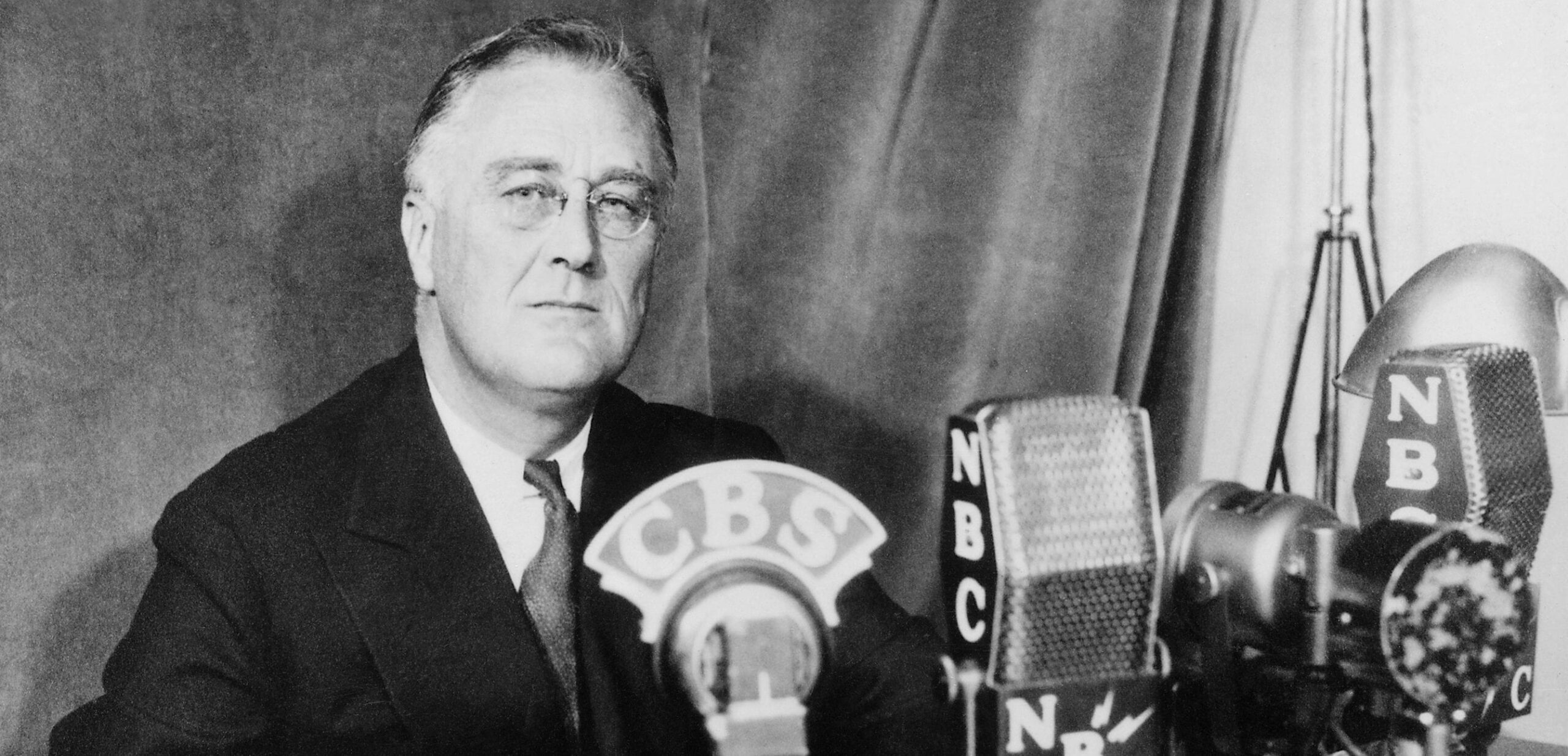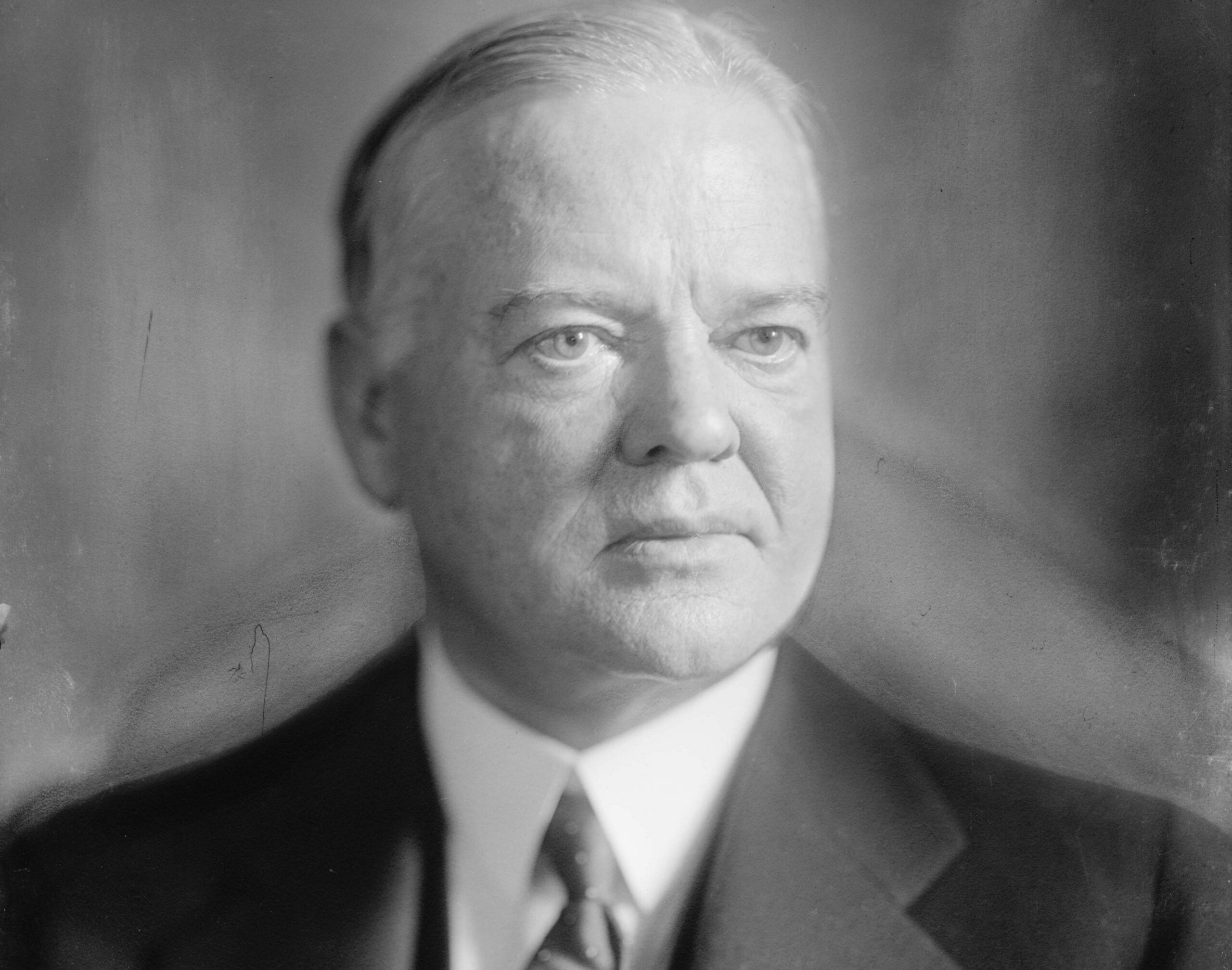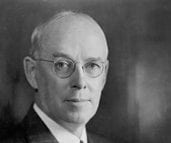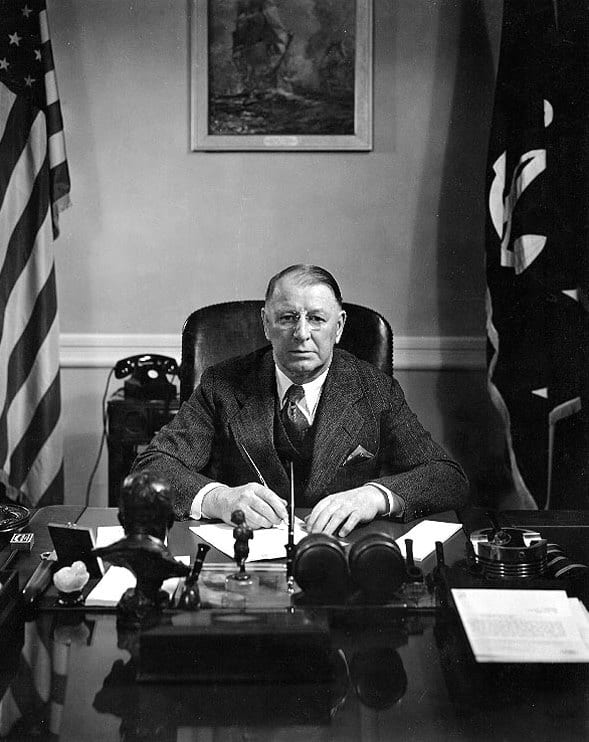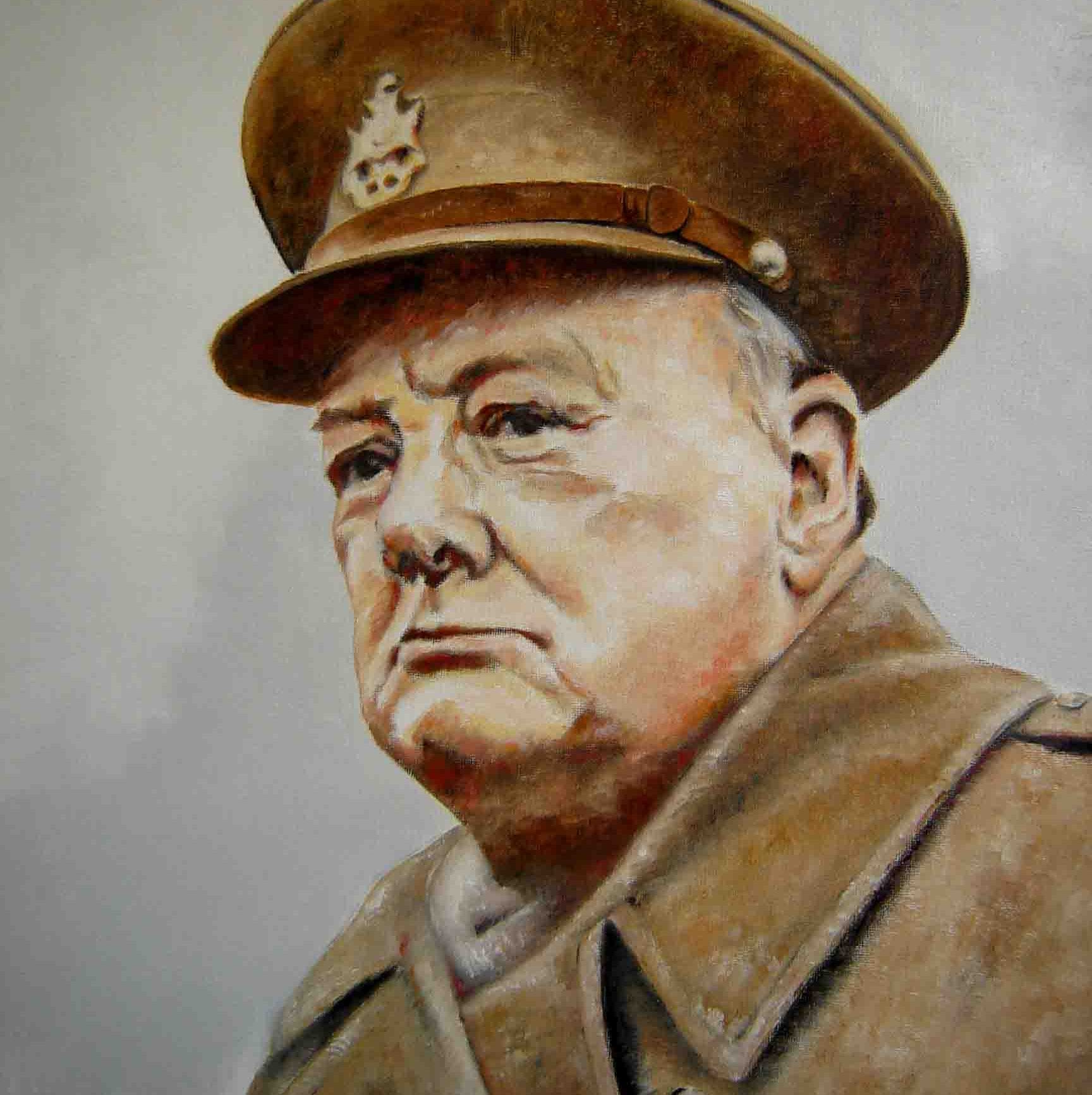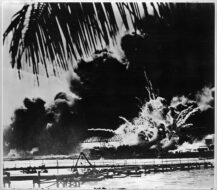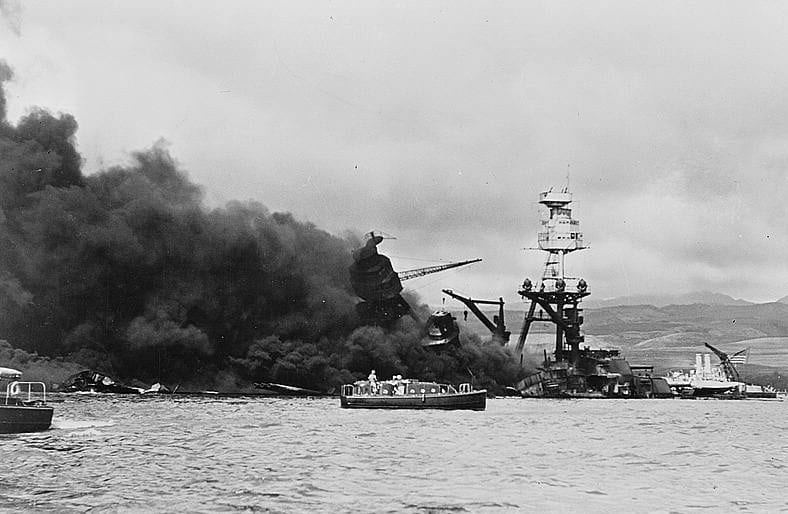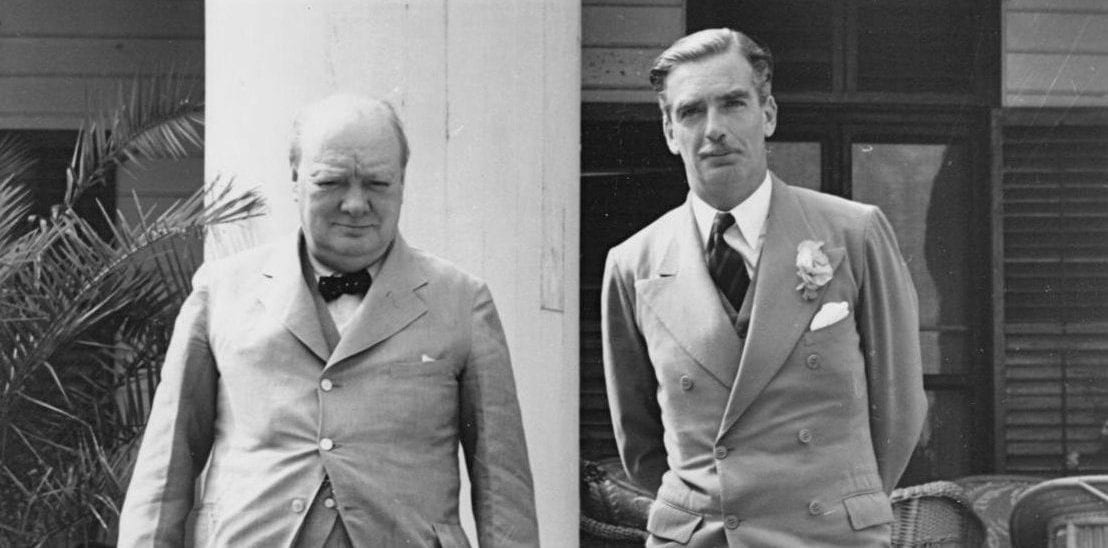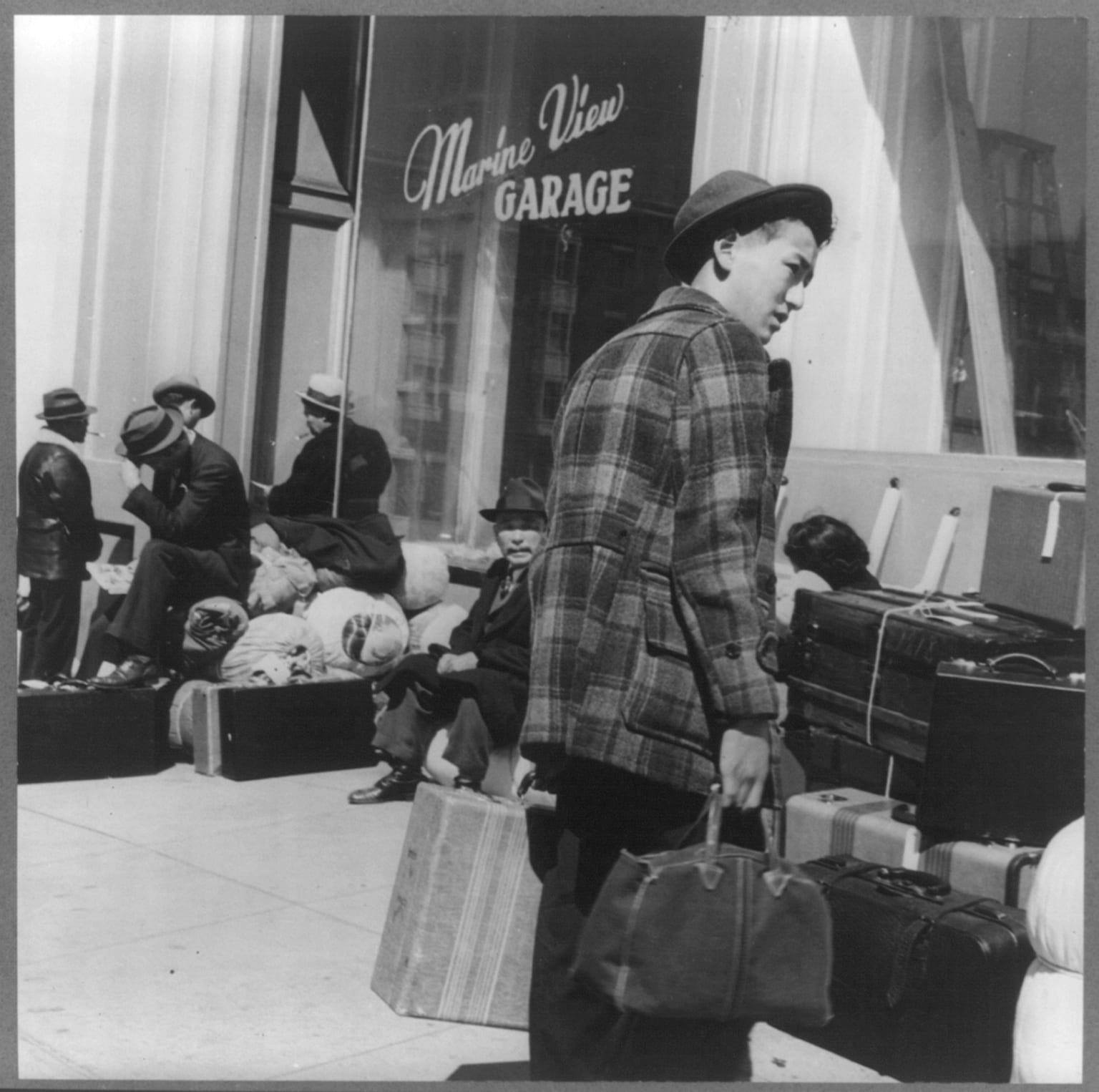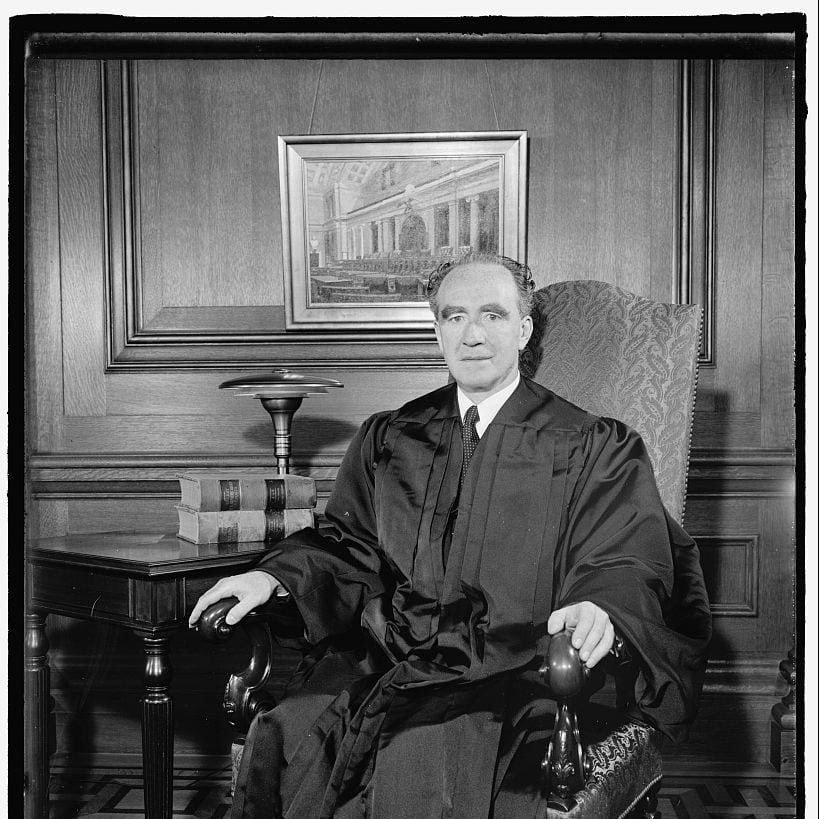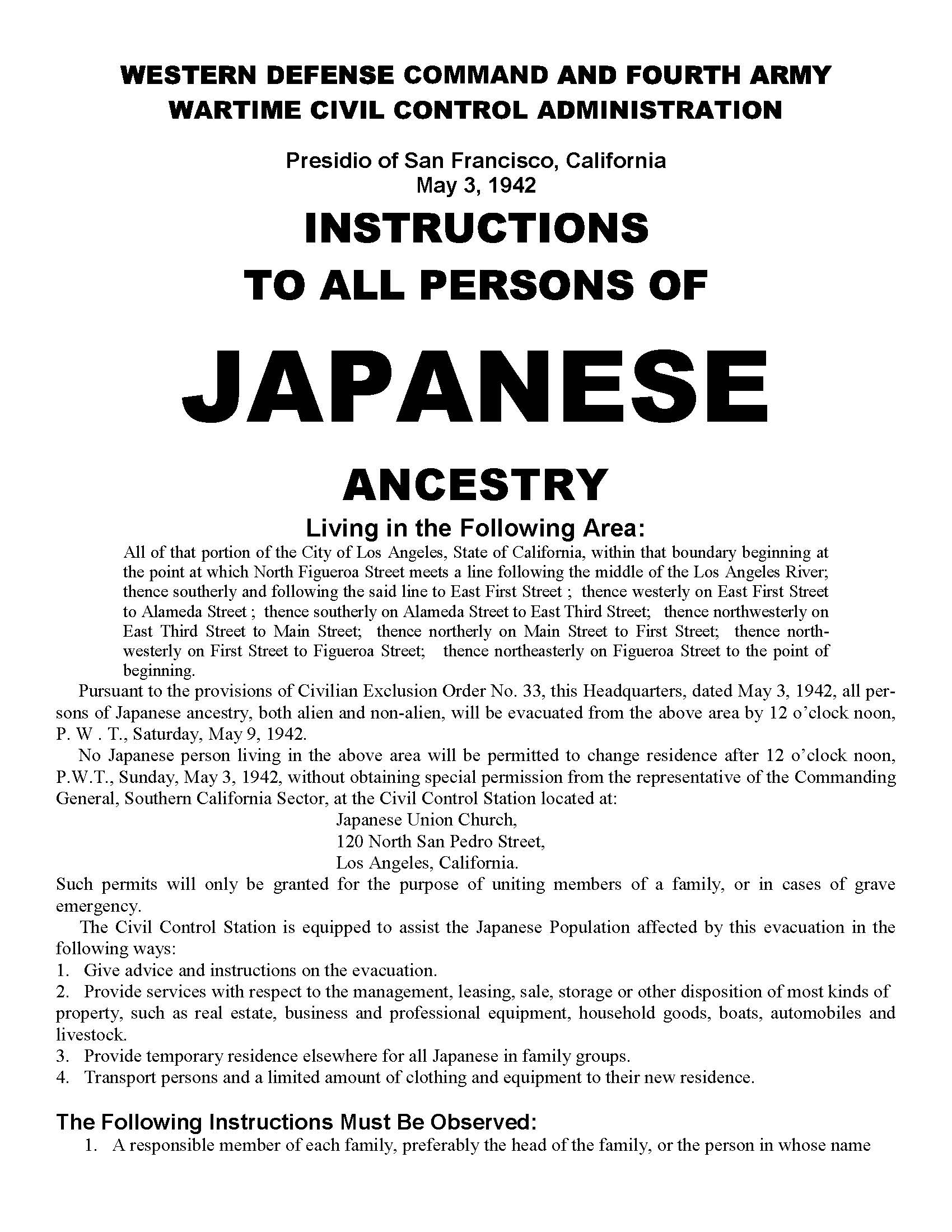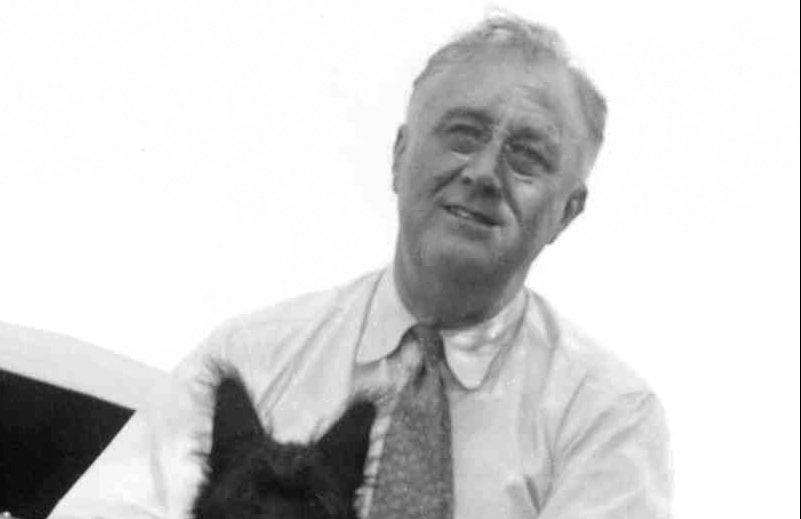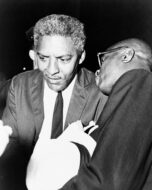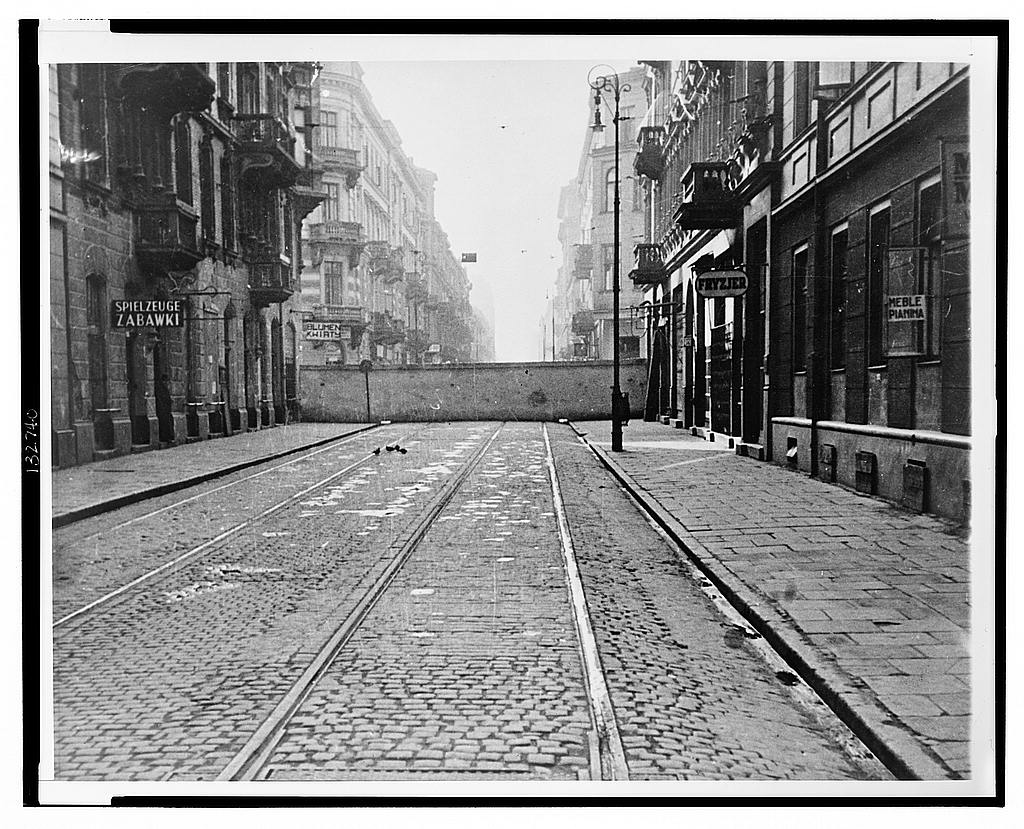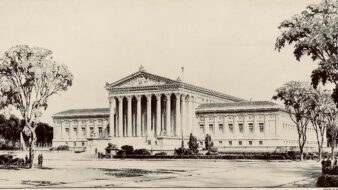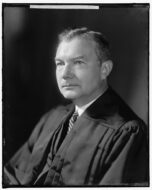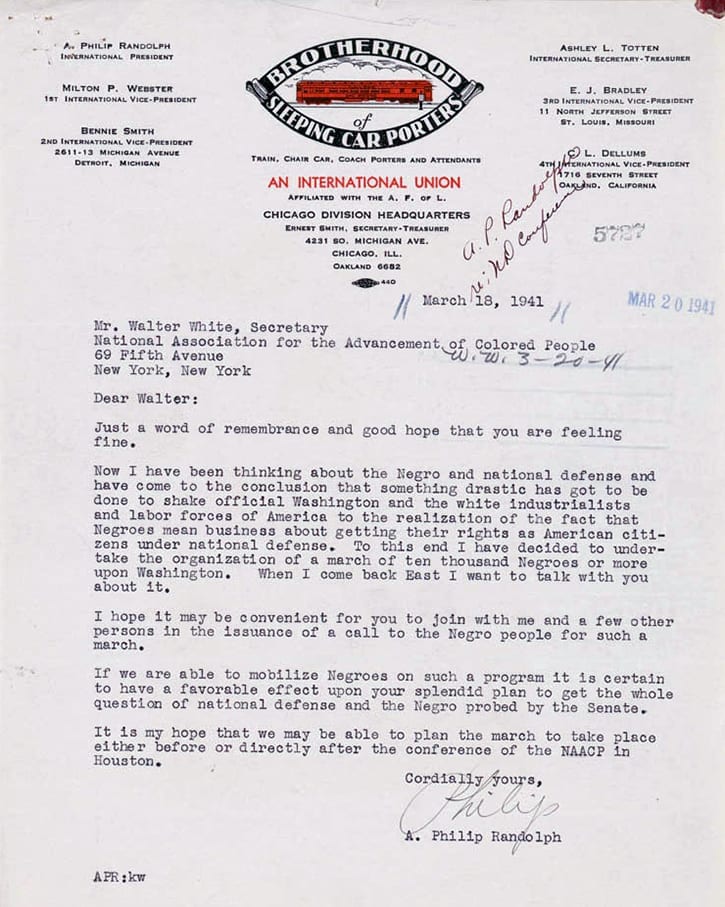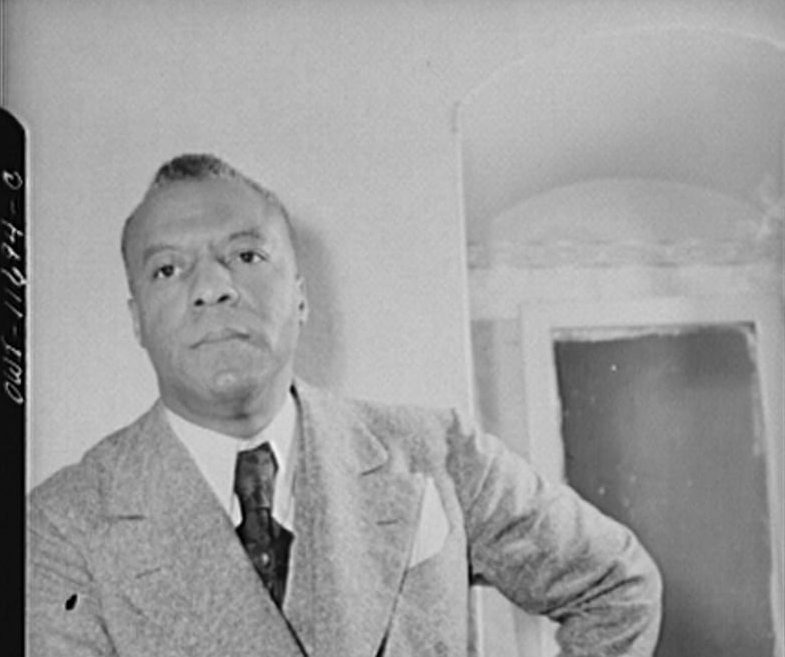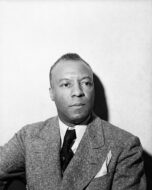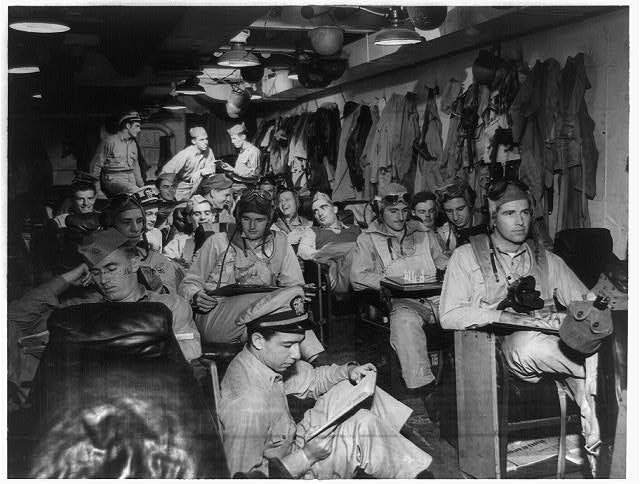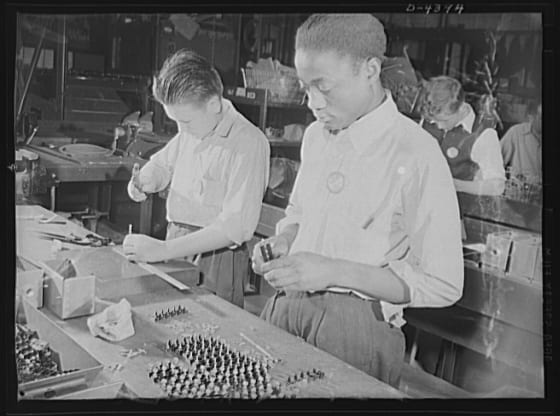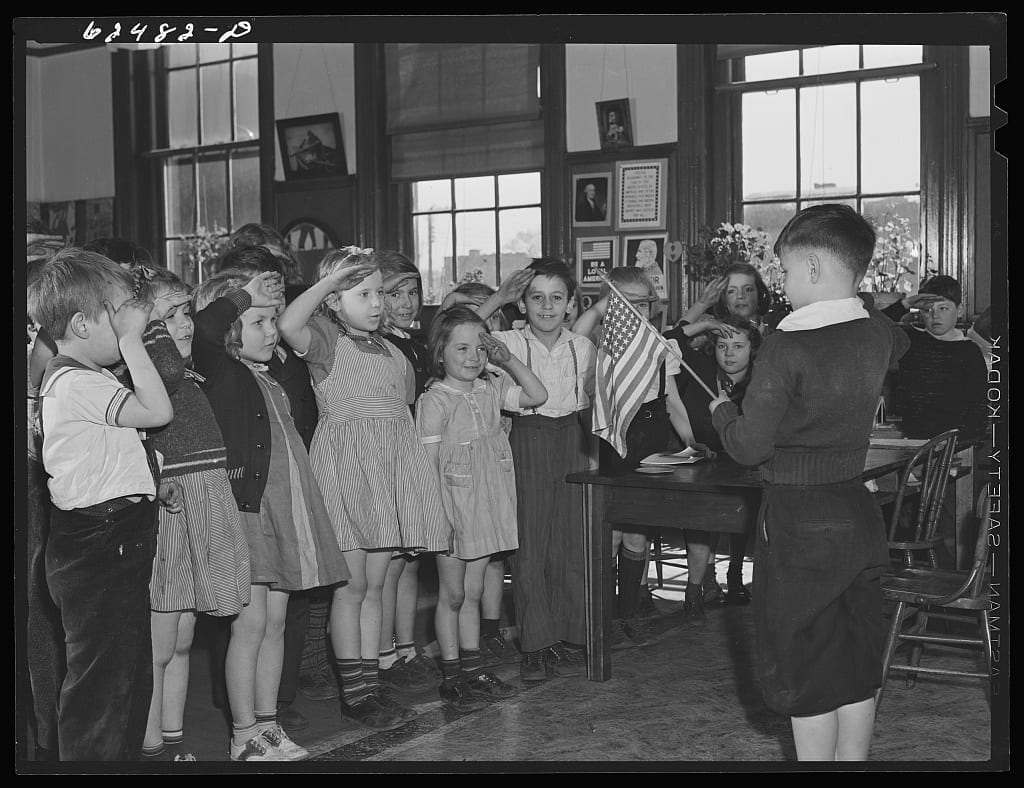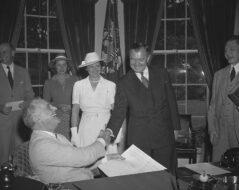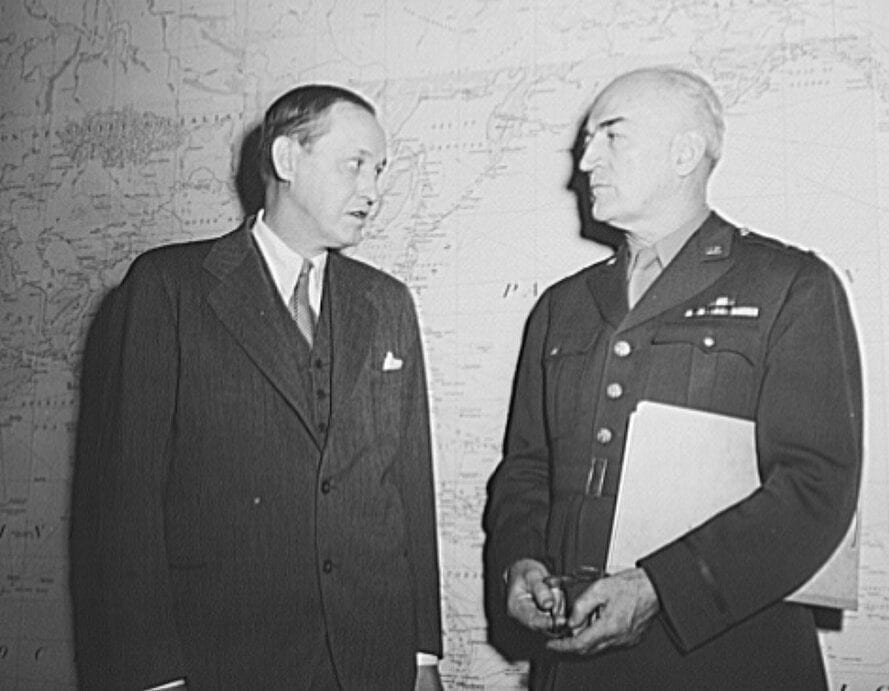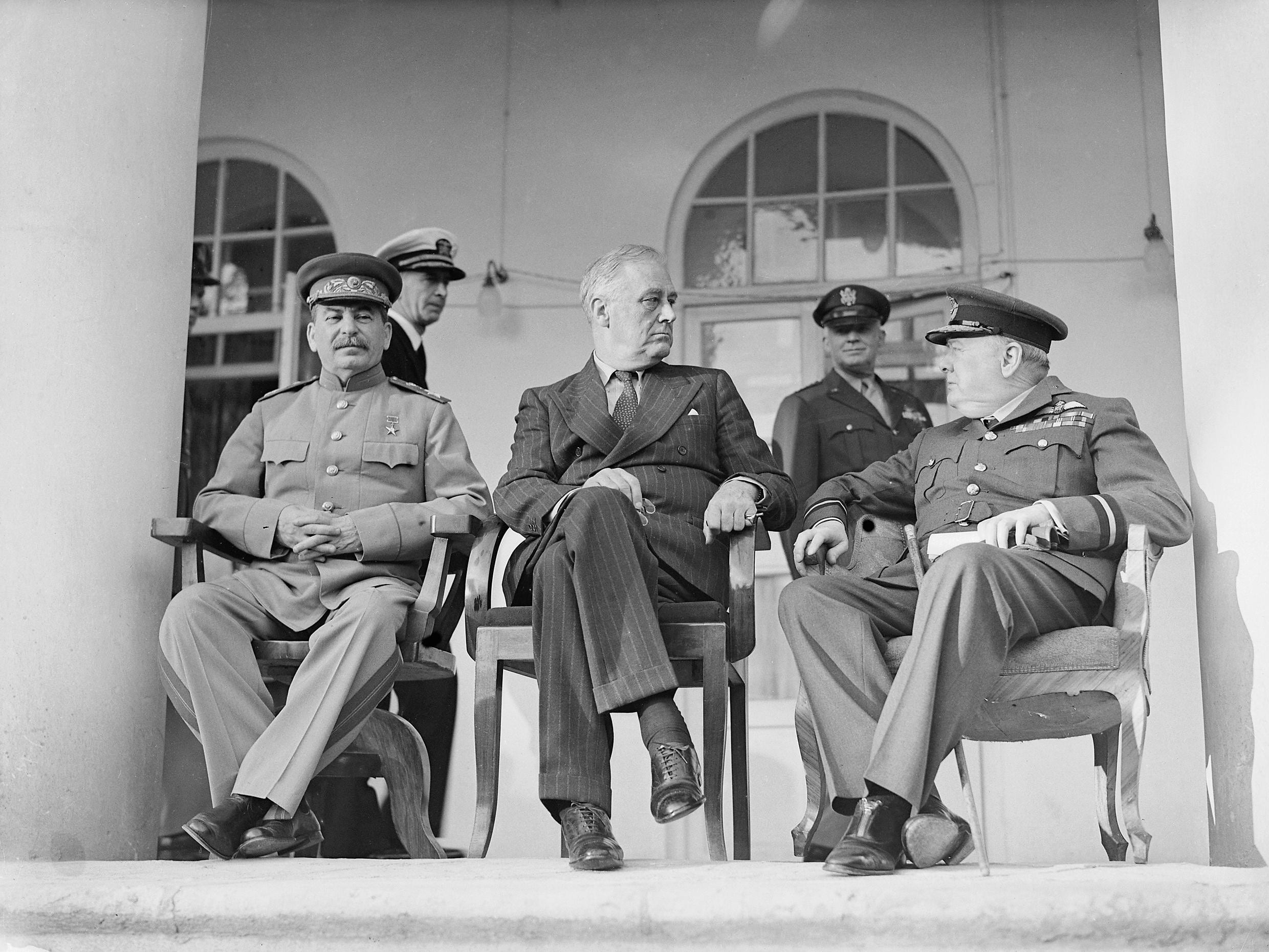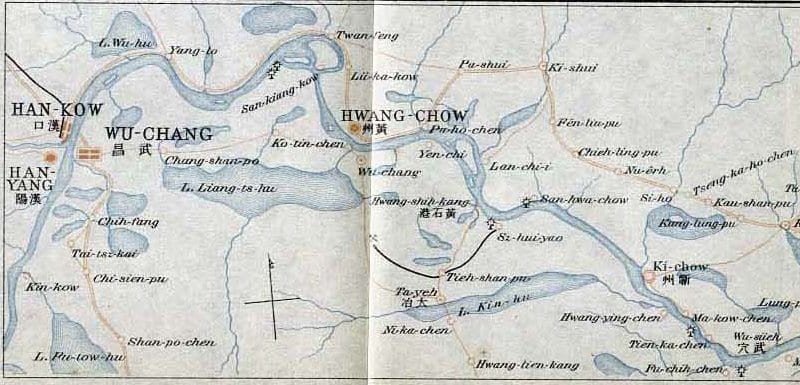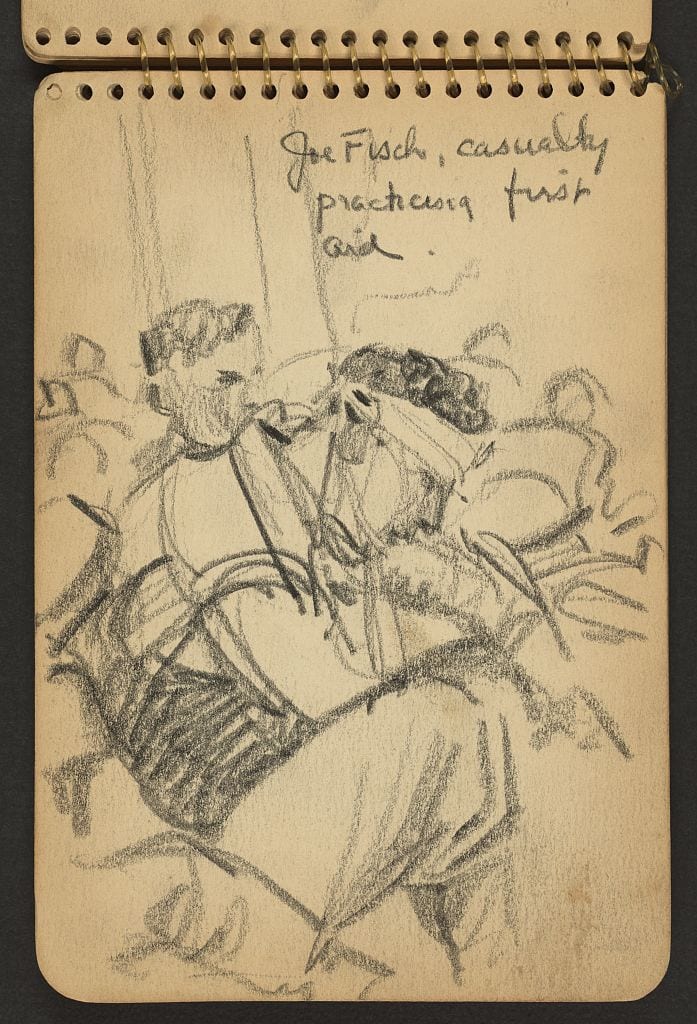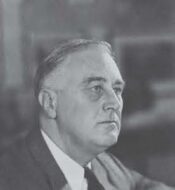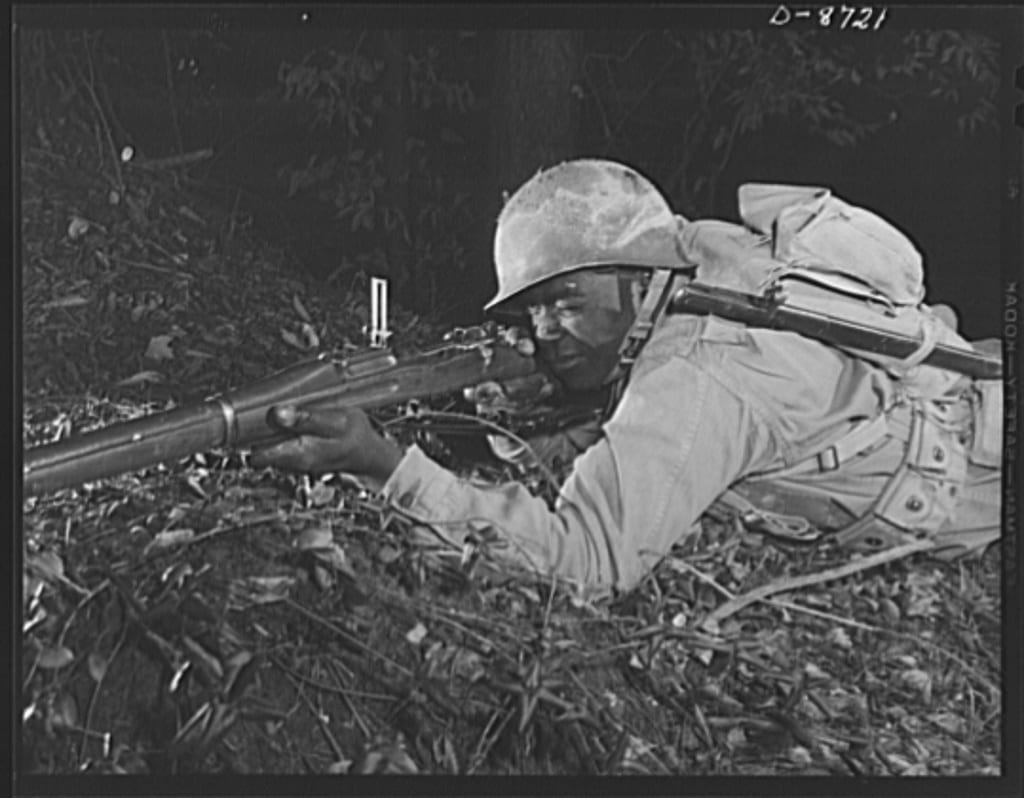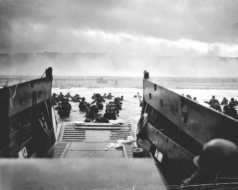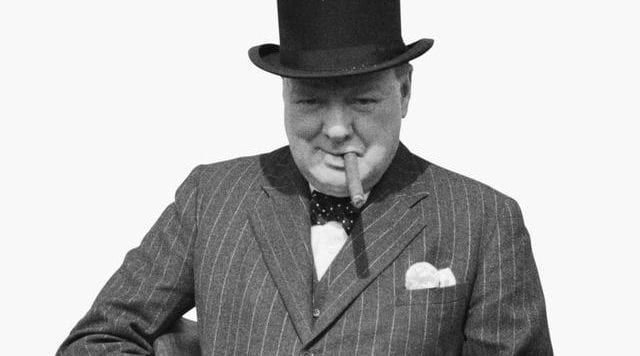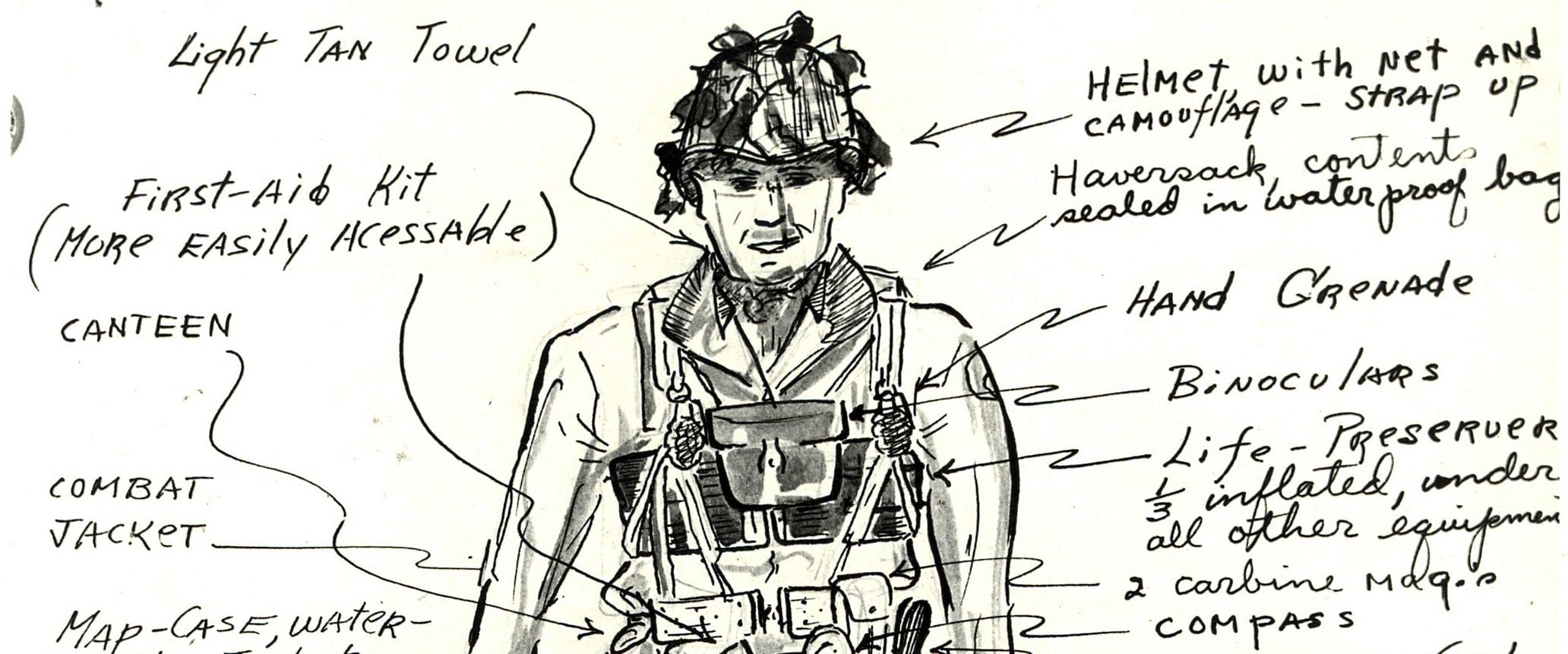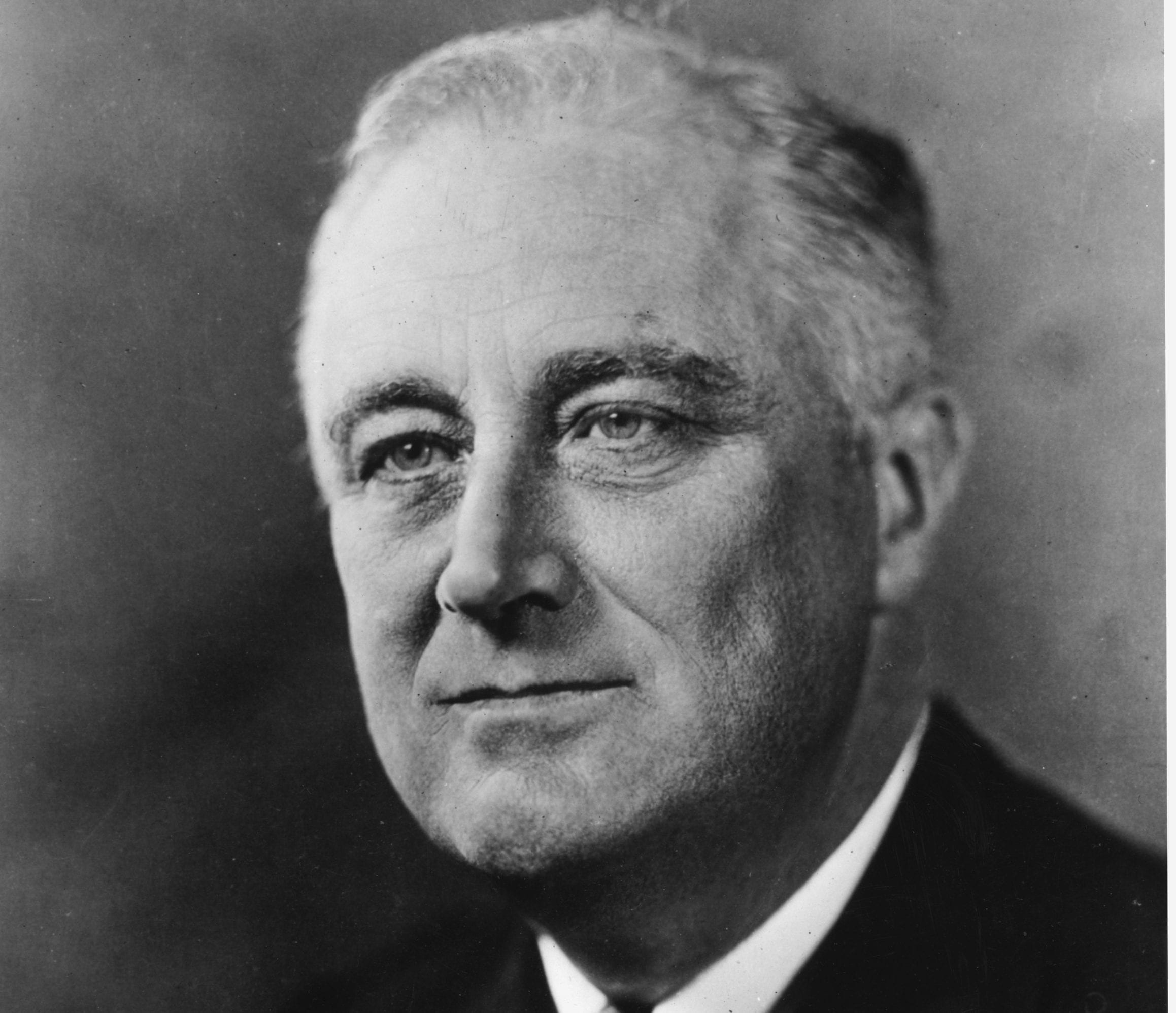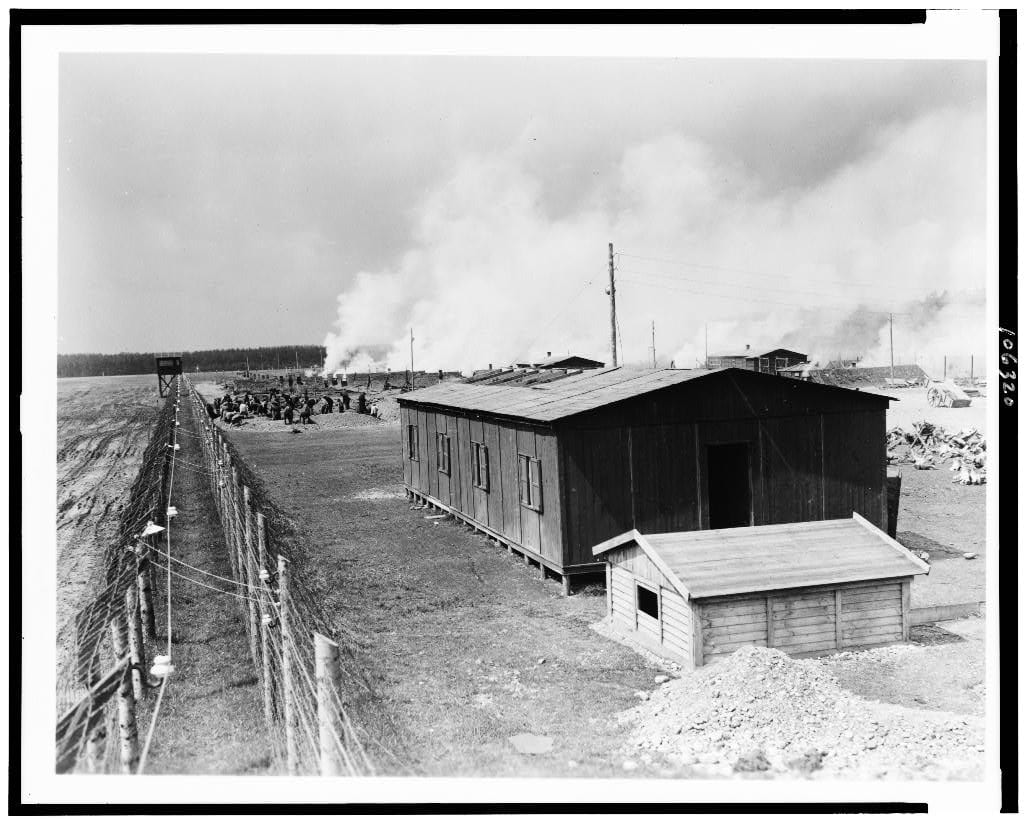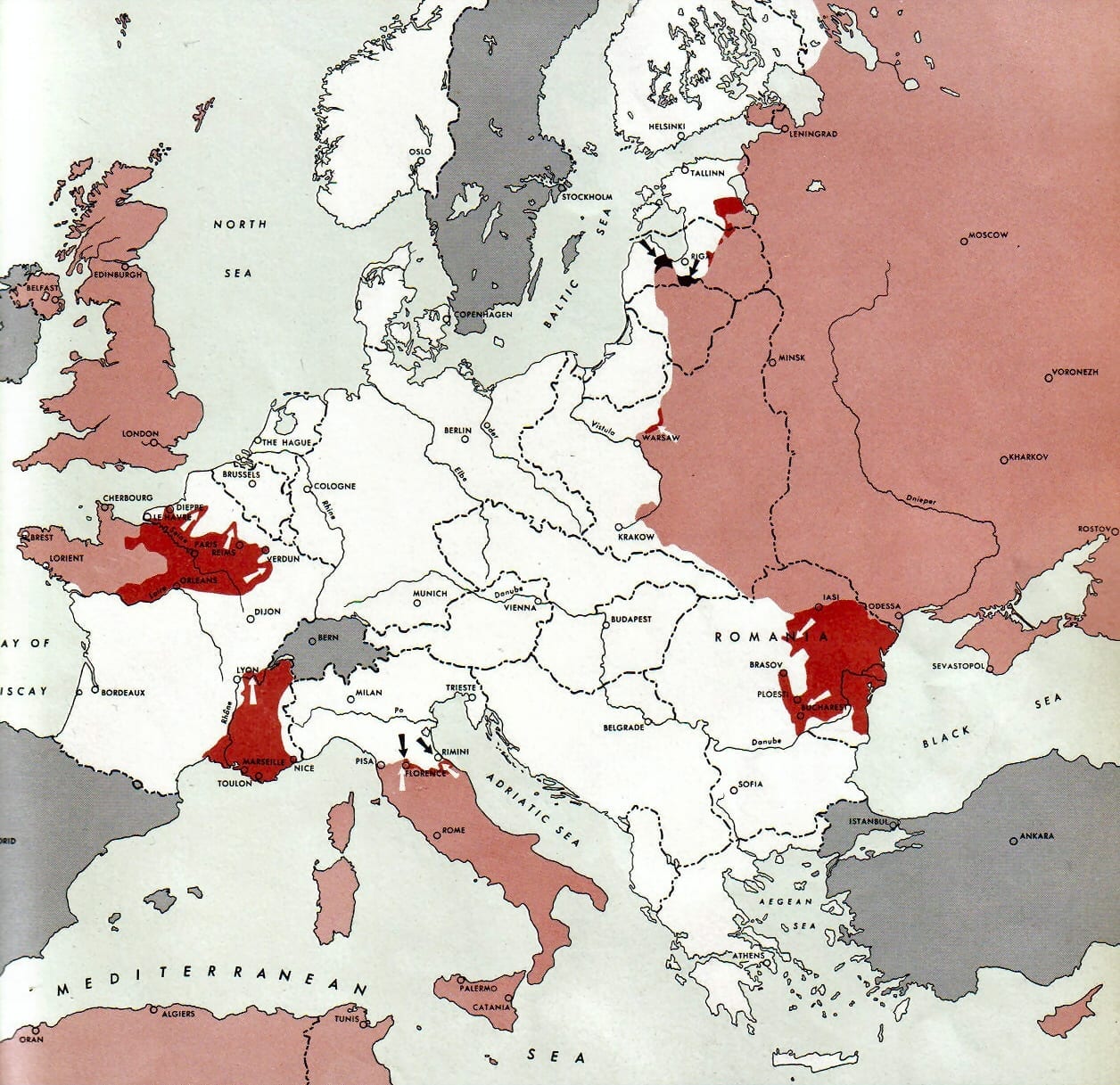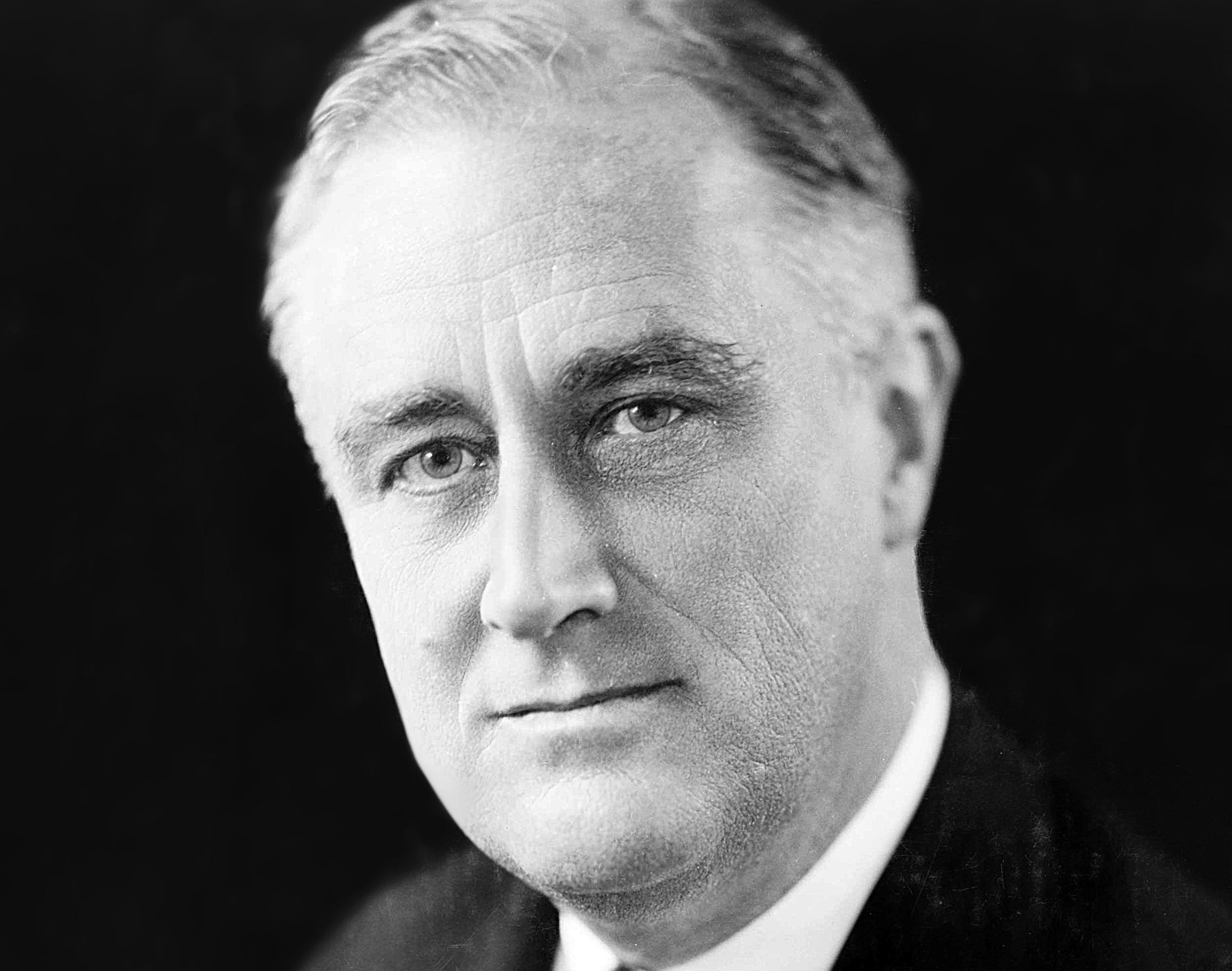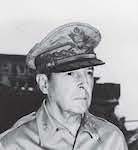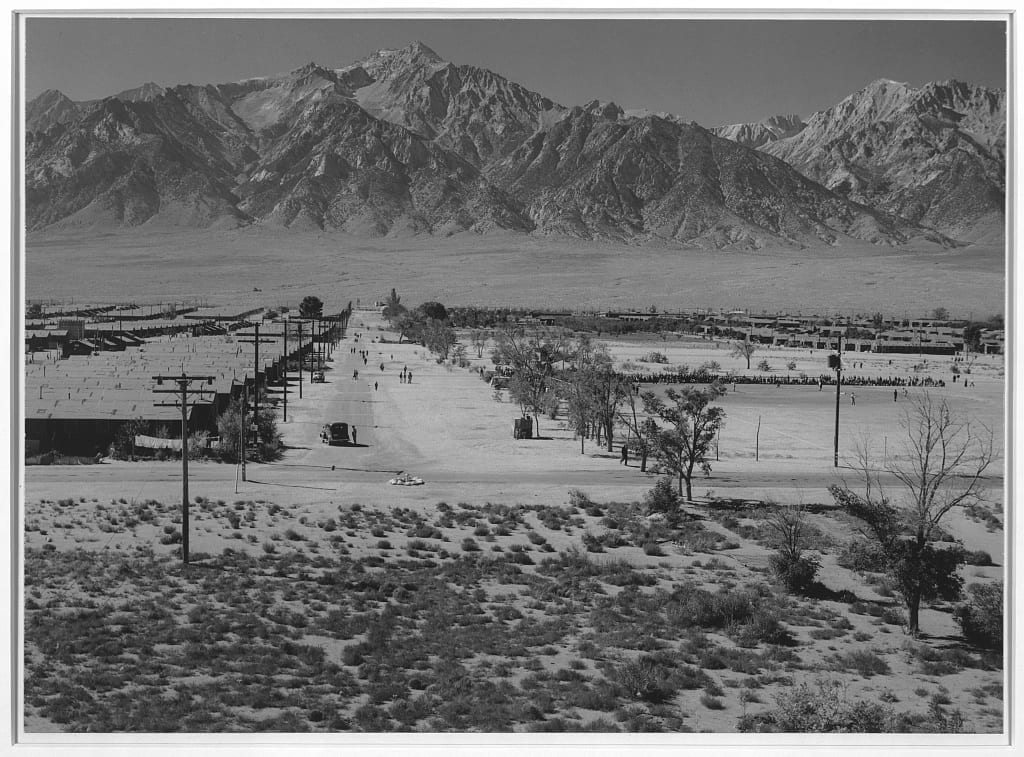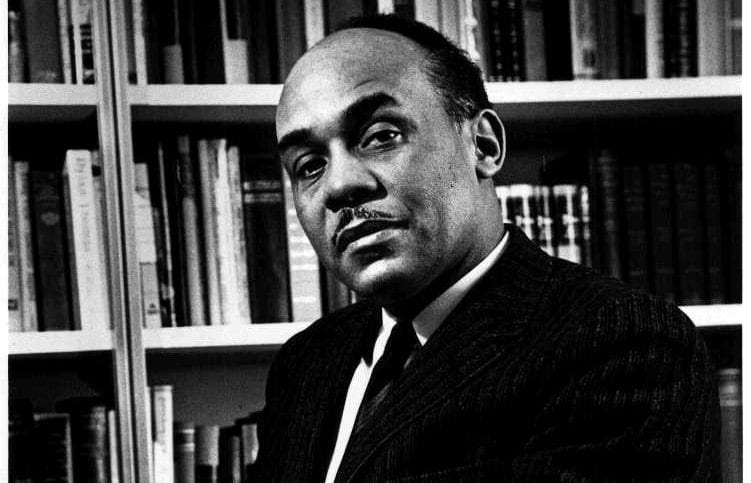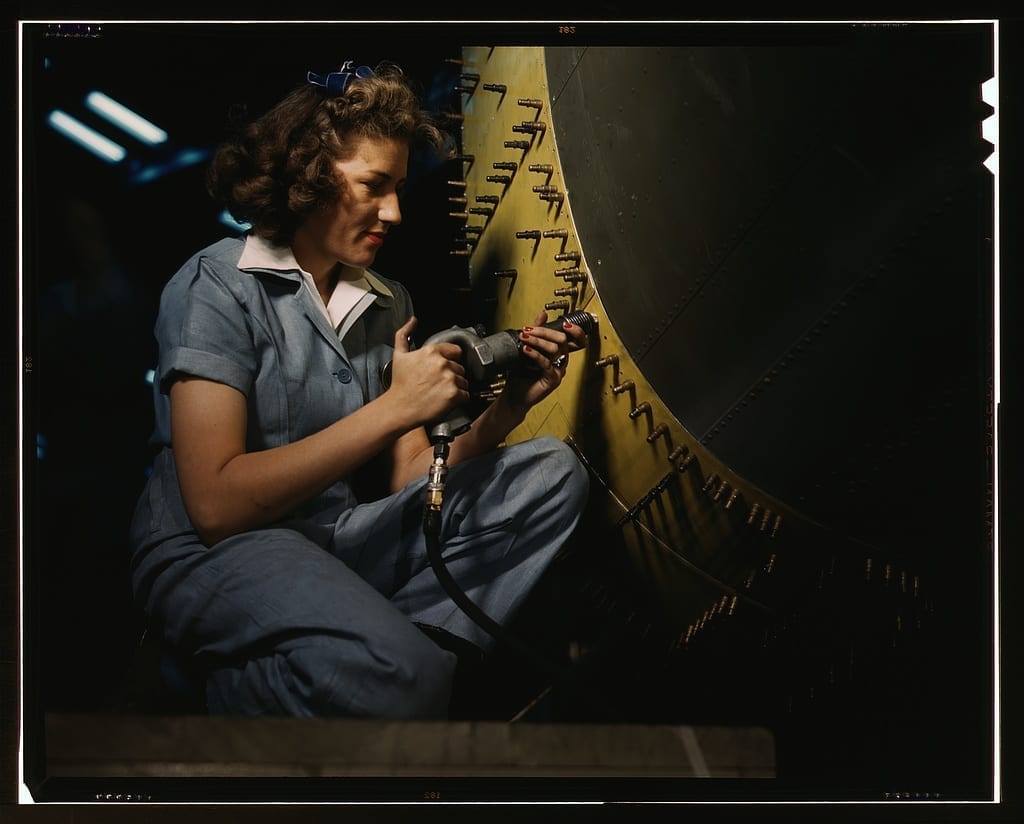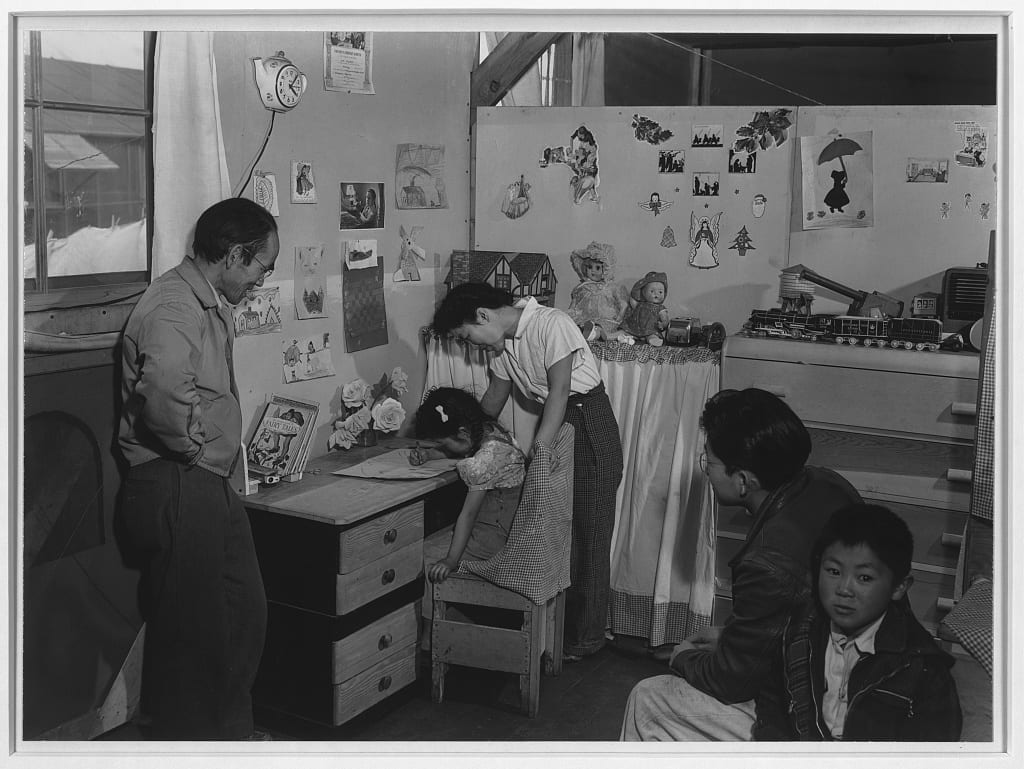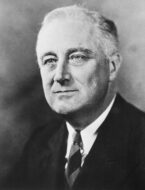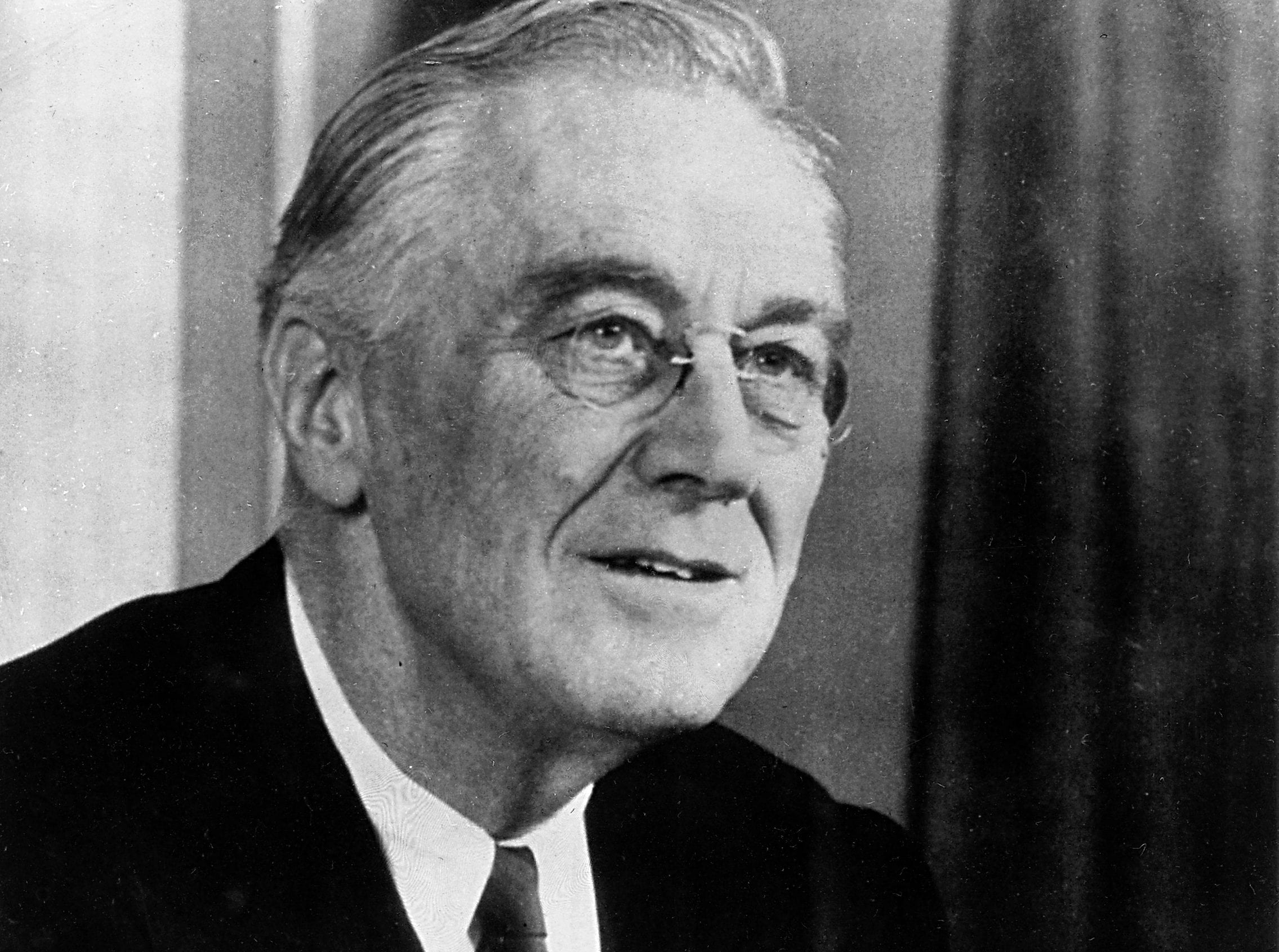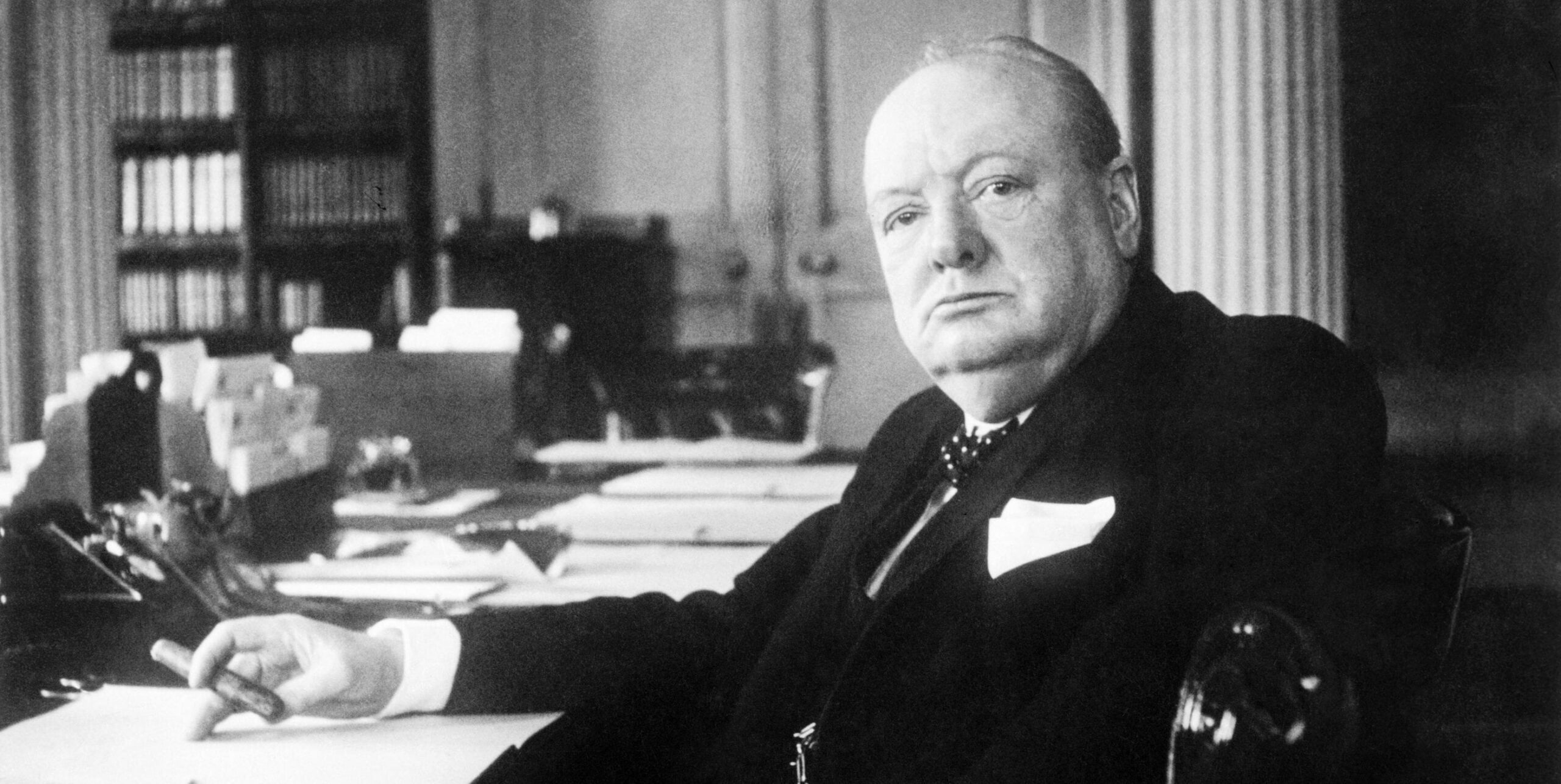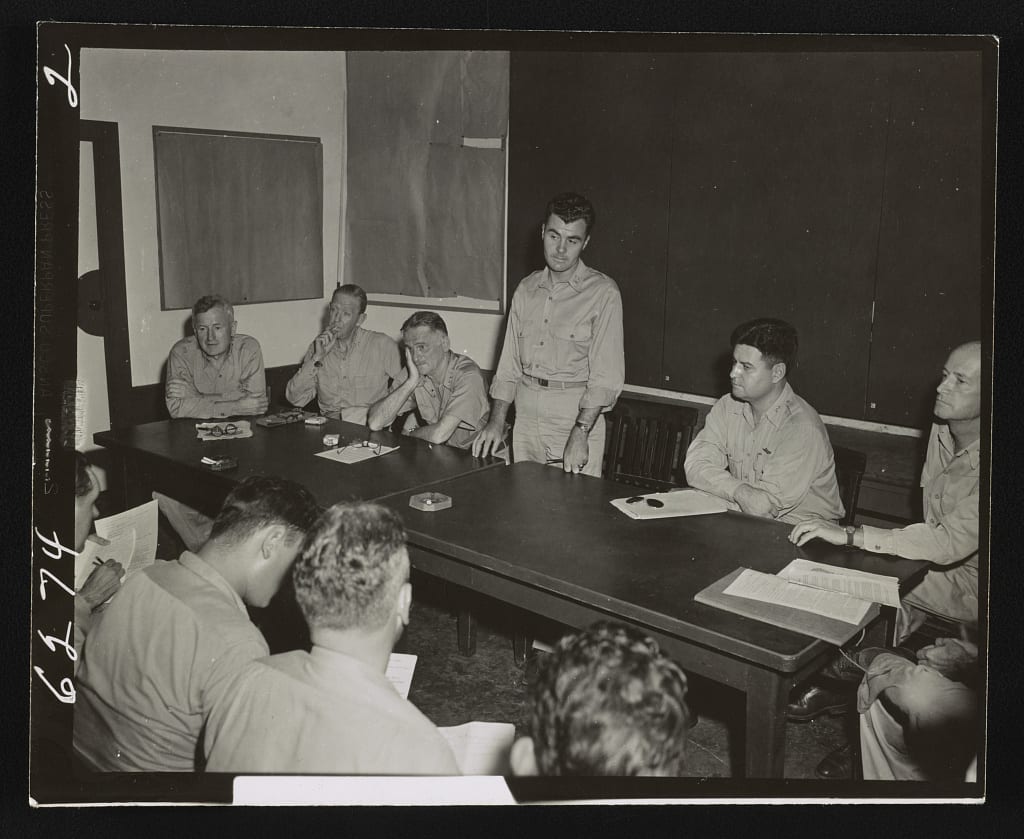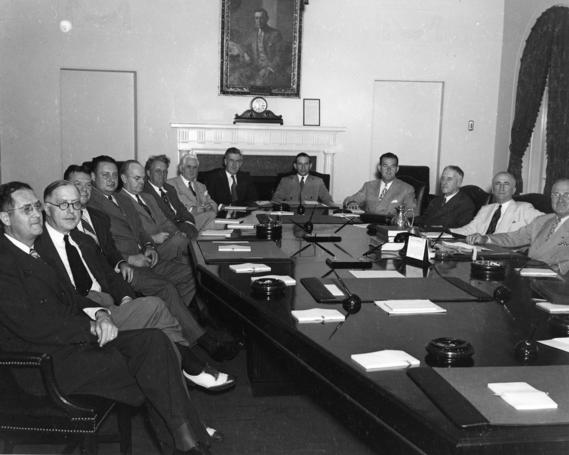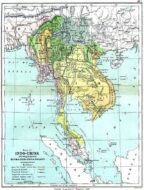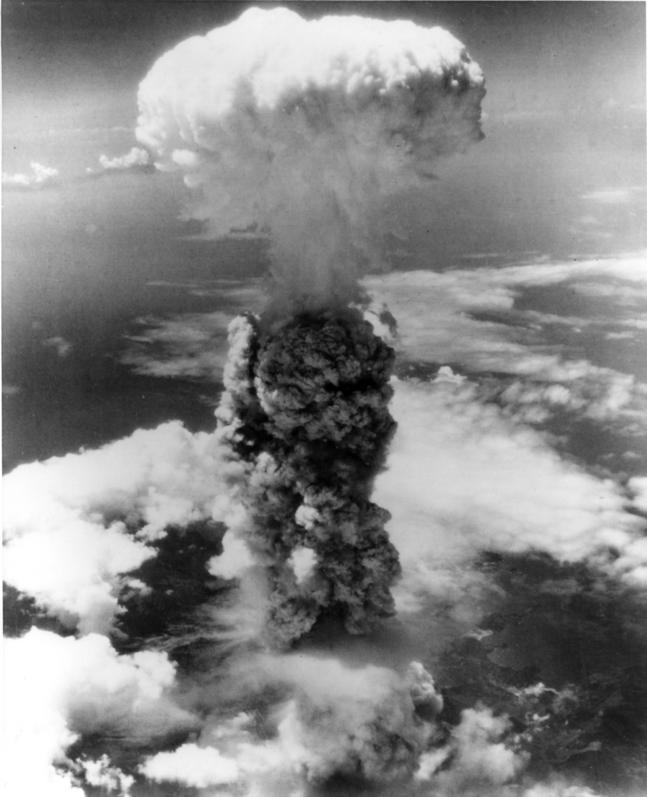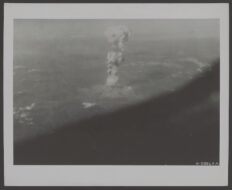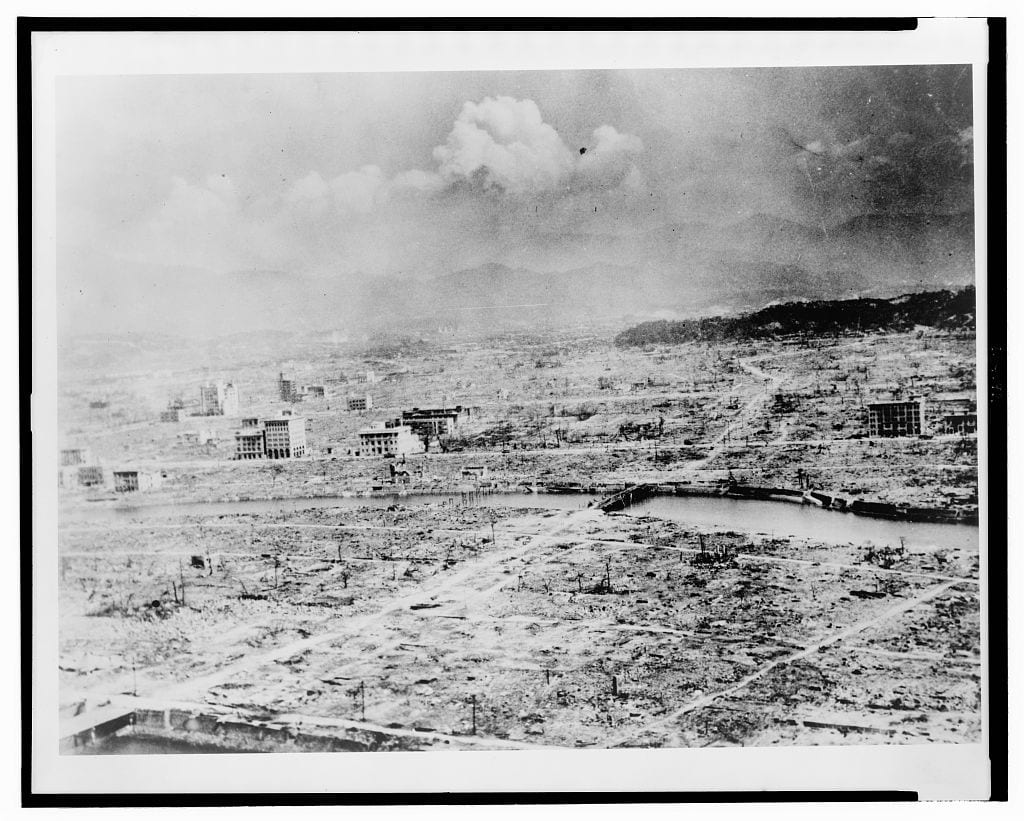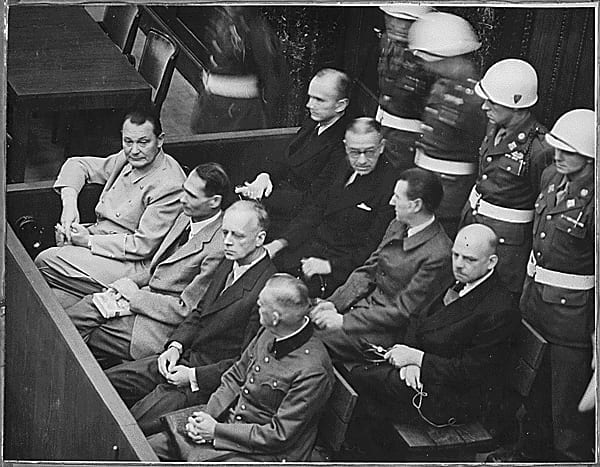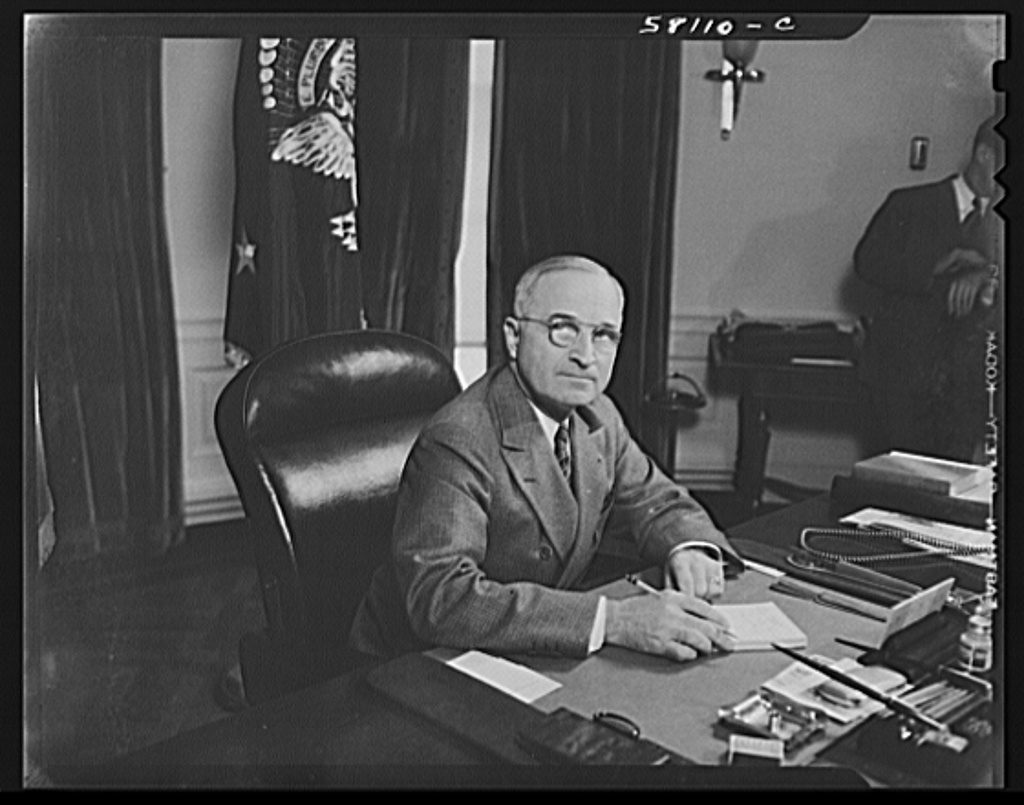

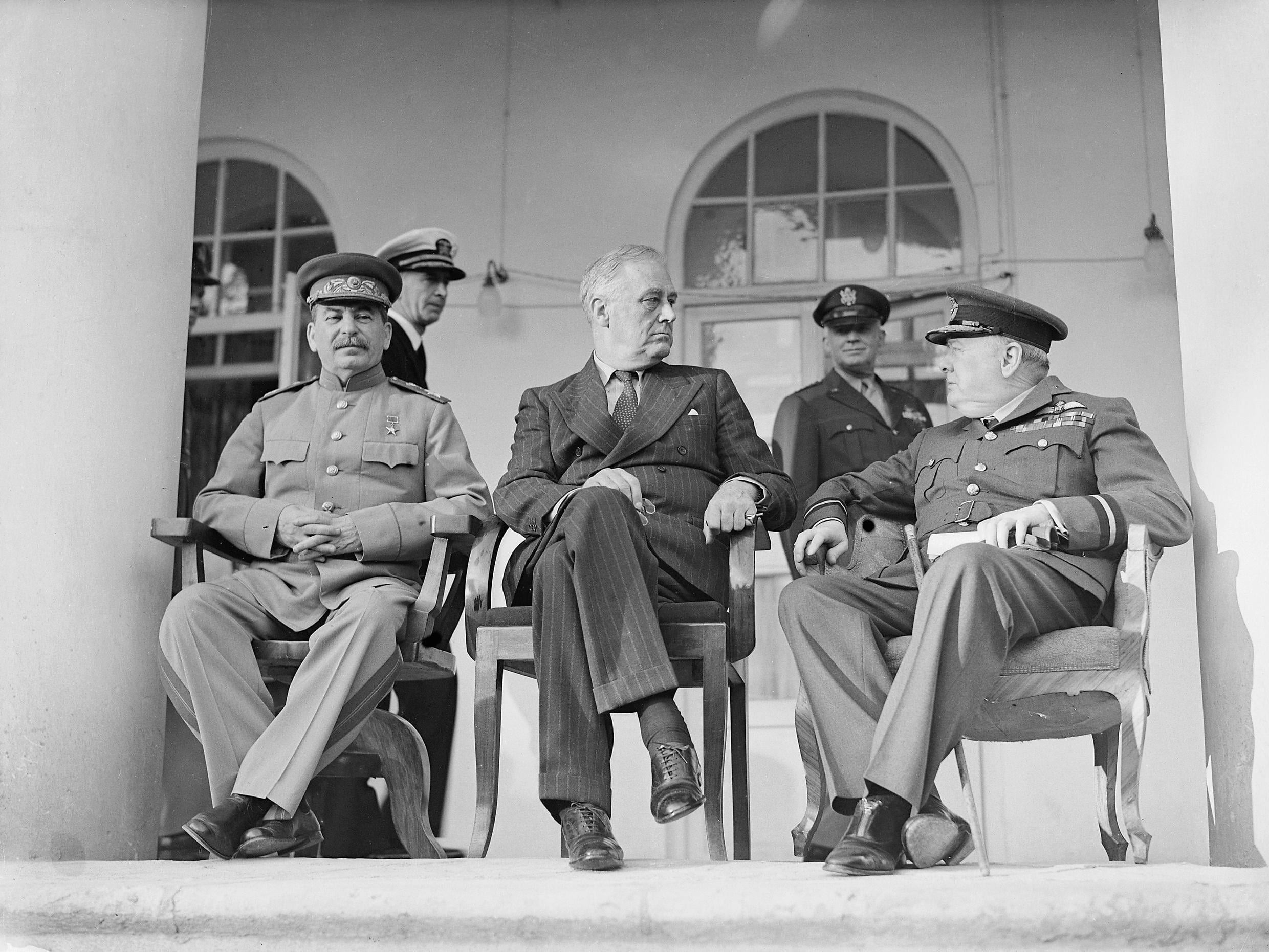
| UNITED STATES | UNITED KINGDOM | SOVIET UNION |
| President Roosevelt | Prime Minister Churchill | Marshal Stalin |
| Mr. Hopkins | Foreign Secretary Eden | Foreign Commissar Molotov |
| Mr. Harriman | Sir Archibald Clark Kerr | Mr. Pavlov |
| Mr. Bohlen | Major Birse |
SECRET
THE PRESIDENT stated he thought that there were two main questions to be discussed-the question of Poland and the treatment of Germany.
THE PRESIDENT, turning to the subject of Poland, said it was his hope that negotiations could be started for the re-establishment of relations between the Polish and Soviet Governments. He felt that the re-establishment of relations would facilitate any decisions made in regard to the questions at issue. He said he recognized the difficulties which lay in the way.
MARSHAL STALIN replied that the Polish Government in exile were closely connected with the Germans and their agents in Poland were killing partisans. He said it is impossible to imagine what is going on in Poland.
THE PRIME MINISTER said the great question before the English was the fact that they had declared war because of the German invasion of Poland.
He said he personally had been astonished when Chamberlain had given the guarantee in April, 1939 to Poland when he had refused to fight for the Czechs. He had been astonished and glad.
He said that England and France had gone to war in pursuance of this guarantee and it was not that he regretted it, but still it would be difficult not to take cognizance of the fact that the British people had gone to war because of Poland.
He said he had used the illustration of the three matches the other evening in order to demonstrate one possible solution of the questions.
He said that the British Government was first of all interested in seeing absolute security for the Western frontiers of the Soviet Union against any surprise assault in the future from Germany.
MARSHAL STALIN replied that Russia, probably more than any other country was interested in having friendly relations with Poland, since the security of Soviet frontiers was involved.
He said the Russians were in favor of the reconstitution and expansion of Poland at the expense of Germany and that they make distinction between the Polish Government in exile and Poland.
He added that they broke relations with Poland not because of a whim but because the Polish [Poles] had joined in slanderous propaganda with the Nazis.
He inquired what guarantee could there be that this would not be repeated. He said they would like to have a guarantee that the Polish Government in exile would cease the killing of partisans in Poland and secondly to urge the people to fight against the Germans and not to indulge in intrigues.
The Russians would welcome relations with a Polish Government that led its people in the common struggle but it was not sure that the Polish Government in exile could be such a government. However, he added, if the government in exile would go along with the partisans and sever all connections with the German agents in Poland, then the Russians would be prepared to negotiate with them.
THE PRIME MINISTER said he would like to obtain the views of the Soviet Government in regard to the frontier question, and if some reasonable formula could be devised, he was prepared to take it up with the Polish Government in exile, and without telling them that the Soviet Government would accept such a solution, would offer it to them as probably the best they could obtain. If the Polish Government refused this, then Great Britain would be through with them and certainly would not oppose the Soviet Government under any condition at the peace table. He said the British Government wished to see a Poland strong and friendly to Russia.
MARSHAL STALIN replied this was desirable, but it was not just for the Poles to try and get back the Ukraine and White Russia; that the frontiers of 1939 had returned the Ukrainian soil to the Ukraine and White Russian soil to White Russia. The Soviet Government adheres to the 1939 line and considers it just and right.
MR. EDEN said that was the line known as the Ribbentrop-Molotov Line.
MARSHAL STALIN said call it what you will, we still consider it just and right.
MR. MOLOTOV interjected to say that the 1939 frontier was the Curzon Line.
MR. EDEN said there were differences.
MR. MOLOTOV replied in no essential points.
There was then an examination of maps as to the exact location of the Curzon Line, and its location was finally established.
THE PRESIDENT inquired whether in the opinion of Marshal Stalin, East Prussia and the area between the old Polish frontier and the Oder was approximately equal to the former Polish territory acquired by the Soviet Union.
MARSHAL STALIN replied he did not know.
THE PRIME MINISTER said that if it was possible to work out some fair solution that it would be up to the Polish [Poles] to accept it.
MARSHAL STALIN replied that the Soviet Union did not wish to retain any regions primarily occupied by Poles even though they were inside the 1939 Line.
THE PRESIDENT inquired whether a voluntary transfer of peoples from the mixed areas was possible.
MARSHAL STALIN said that such a transfer was entirely possible. Turning to the question of Germany, THE PRESIDENT said that the question was whether or not to split up Germany.
MARSHAL STALIN replied that they preferred the dismemberment of Germany.
THE PRIME MINISTER said he was all for it but that he was primarily more interested in seeing Prussia, the evil core of German militarism, separated from the rest of Germany.
THE PRESIDENT said he had a plan that he had thought up some months ago for the division of Germany in five parts. These five parts were:
- All Prussia to be rendered as small and weak as possible.
- Hanover and Northwest section.
- Saxony and Leipzig area.
- Hesse-Darmstadt
- Hesse-Kassel and the area South of the Rhine
- Bavaria, Baden, and Wurtemburg [Württemberg]
He proposed that these five areas should be self-governed and that there should be two regions under United Nations or some form of International control. These were:
- The area of the Kiel Canal and the City of Hamburg.
- The Ruhr and the Saar, the latter to be used for the benefit of all Europe.
THE PRIME MINISTER said, to use an American expression, “The President had said a mouthful.”
He went on to say that in his mind there were two considerations, one destructive and the other constructive.
- The separation of Prussia from the rest of the Reich.
- To detach Bavaria, Baden, Wurtemburg [Württemberg] and the Palatinate from the rest of Germany and make them part of the Confederation of the Danube.
MARSHAL STALIN said he felt if Germany was to be dismembered, it should really be dismembered, and it was neither a question of the division of Germany in five or six states and two areas as the President suggested. However, he said he preferred the President’s plan to the suggestion of Mr. Churchill.
He felt that to include German areas within the framework of large confederations would merely offer an opportunity to the German elements to revive a great State.
He went on to say that he did not believe there was a difference among Germans; that all German soldiers fought like devils and the only exception was the Austrians.
He said that the Prussian Officers and Staffs should be eliminated, but as to the inhabitants, he saw little difference between one part of Germany and another.
He said he was against the idea of confederation as artificial and one that would not last in that area, and in addition would provide opportunity for the German elements to control.
Austria, for example, had existed as an independent state and should again. Hungary, Rumania, and Bulgaria likewise.
THE PRESIDENT said he agreed with the Marshal, particularly in regard to the absence of differences between Germans. He said fifty years ago there had been a difference but since the last war it was no longer so.
He said the only difference was that in Bavaria and the Southern part of Germany there was no officer cast[e] as there had been in Prussia. He agreed with Marshal Stalin that the Austrians were an exception.
THE PRIME MINISTER said he did not wish to be considered as against the dismemberment of Germany-quite the contrary, but he felt to separate the parts above would merely mean that sooner or later they will reunite into one nation and that the main thing was to keep Germany divided if only for fifty years.
MARSHAL STALIN repeated what he had said as to the danger of the re-unification of Germany. He said no matter what measures were adopted there would always be a strong urge on the part of the Germans to unite.
He said it was a great mistake to unite Hungary with Germans since the Germans would merely control the Hungarians and to create large frameworks within which the Germans could operate would be very dangerous.
He felt the whole purpose of any international organization to preserve peace would be to neutralize this tendency on the part of the Germans and apply against them economic and other measures and if necessary, force, to prevent their unification and revival. He said the victorious nations must have the strength to beat the Germans if they ever start on the path of a new war.
THE PRIME MINISTER inquired whether Marshal Stalin contem-plated a Europe composed of little states, disjoined, separated and weak.
MARSHAL STALIN replied not Europe but Germany.
He supposed for example that Poland would be a strong country, and France, and Italy likewise; that Rumania and Bulgaria would remain as they always had; small States.
THE PRESIDENT remarked Germany had been less dangerous to civilization when in 107 provinces.
THE PRIME MINISTER said he hoped for larger units.
THE PRIME MINISTER then returned to the question of Poland and said he was not asking for any agreement nor was he set on the matter but he had a statement which he would like to have the Marshal examine.
This statement suggested that Poland should obtain equal com-pensation in the West, including Eastern Prussia and frontiers on the Oder to compensate for the areas which would be in the Soviet Union.
THE PRESIDENT interjected to say that one question in regard to Germany remained to be settled and that was what body should be empowered to study carefully the question of dismemberment of Germany.
It was agreed that the European Advisory Committee [Commis-sion] would undertake this task.
THE PRIME MINISTER said in his opinion the Polish question was urgent.
He repeated if it would be possible to work out a formula here, and then [sic] he could go back to the Polish Government in London and urge on them the desirability of at least attempting to reach a settle-ment along those lines, without however indicating any commitment on the part of the Soviet Government.
MARSHAL STALIN said that if the Russians would be given the northern part of East Prussia, running along the left bank of the Niemen and include Tils[i]t and the City of Konigsberg, he would be prepared to accept the Curzon Line as the frontier between the Soviet Union and Poland.
He said the acquisition of that part of Eastern Prussia would not only afford the Soviet Union an ice-free port but would also give to Russia a small piece of German territory which he felt was deserved.
Although nothing definitely was stated, it was apparent that the British were going to take this suggestion back to London to the Poles.
Foreign Relations of the United States: The Conferences at Cairo and Teheran, 1943, pp 594-604
Tehran Conference: Roosevelt-Stalin Meeting
December 01, 1943
Conversation-based seminars for collegial PD, one-day and multi-day seminars, graduate credit seminars (MA degree), online and in-person.

